-
UPC Litigation Forum (19th): Monday, 19 Jan, 202608:30am - 9:30amRegistration09:30am - 09:40amCo-Chair Introduction to the UPC Litigation Forum
Co-Chair Introduction
Speaker(s):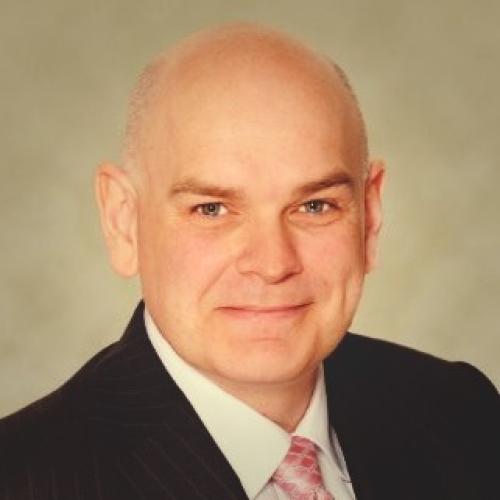
Sean Alexander
Head of IP StrategyUmicoreSean Alexander is a qualified European Patent Attorney as well as a Canadian and U.S. Patent Agent. He has worked in the IP field for many years and is currently the Head of IP Strategy (H&N) for Chr. Hansen in Denmark. Prior to joining Chr. Hansen, Sean headed the IP team at Elanco Inc. based in the Netherlands and was a Partner with Gowling WLG in Canada. Sean has been recognized as one of the world's leading IP strategists by IAM Magazine and is regularly praised for his pragmatic and commercially aware approach to IP.

Alex Morgan
PartnerPaul HastingsTime:09:30am-09:40amSession Type:General Session (Presentation)Force Inline Description:0Claim Construction at the UPC: A Review of EPO, National and UPC Case Law
Claim Construction at the UPC: A Review of EPO, National and UPC Case Law This session examines the UPC’s evolving approach to claim interpretation, highlighting key decisions that clarify how claims are construed in comparison with EPO and national practices. It will explore recent landmark rulings and ongoing developments shaping patent litigation strategies.
• Review the UPC Court of Appeal decision NanoString Technologies v. 10xGenomics, which clarified the standard for interpreting patent claims based on Article 69 EPC and its Protocol, affecting both infringement and validity assessments.
• Examine the ongoing question of whether the file wrapper should be considered in claim construction, which awaits a final decision by the UPC Court of Appeal.
• Analyse the decision of G1/24 and its impact upon claims raised at national courts, the EPO and the UPC.Speaker(s):
Sabine Agé
PartnerHoyng Rokh Monegier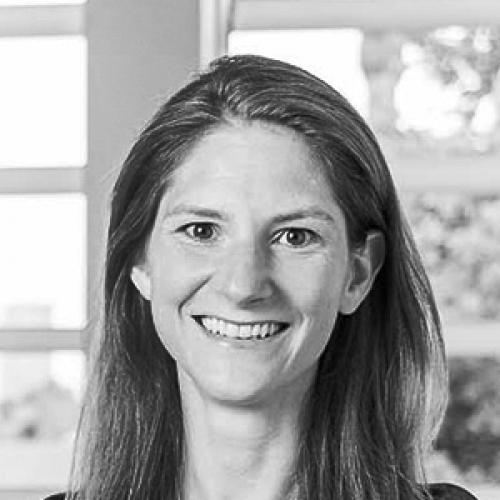
Agathe Michel-De-Cazotte
PartnerCarpmaels & Ransford
Manuel Neetz
IP CounselSiemens HealthineersTime:09:40am - 10:25amAgenda Track No.:Track 3Session Type:PanelForce Inline Description:0The Development of the Doctrine of Equivalents Case Law: Comparing the UPC with National Jurisdictions
This session examines how the UPC’s evolving case law on equivalence compares with national practices in jurisdictions such as the UK, USA, Germany, and Brazil. With recent UPC decisions applying the four-prong test to life sciences disputes, panellists will assess whether the doctrine is delivering legal certainty while ensuring fair protection for patentees.
• Analyse how recent UPC rulings apply the doctrine of equivalents and compare with approaches in the UK, USA, Germany, and Brazil.
• Are the four key UPC questions workable in practice, especially in the life sciences context?
• Evaluate the balance between legal certainty for third parties and fair protection for patent holders under the UPC system.Speaker(s):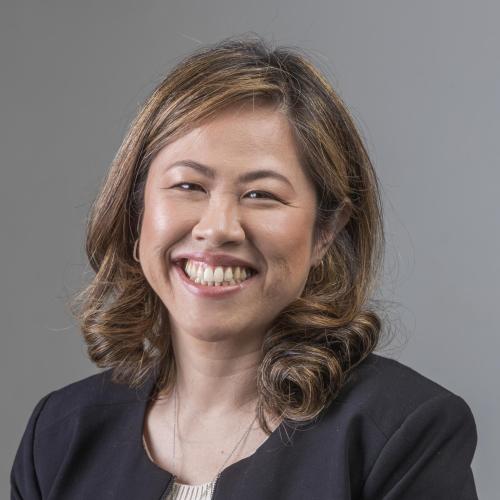
Viviane Kunisawa
PartnerDaniel Law
Liz Cohen
PartnerBristows
Julia Schönbohm
PartnerLinklaters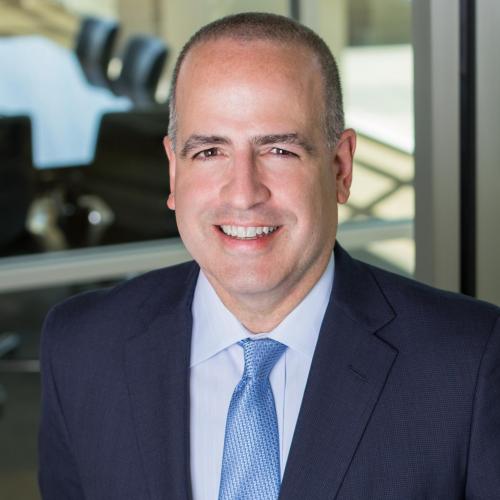
Jon Singer
PrincipalFish & RichardsonJon is a principal in the firm’s San Diego office and heads the life sciences litigation practice. He appears regularly as lead counsel in his matters and handles all aspects of litigation, including leading jury and bench trials, trying cases to administrative and arbitration panels and conducting briefing and arguments before the U.S. Courts of Appeals and the PTAB. Jon is annually named one of the nation’s finest life sciences trial attorneys and is an expert in proceedings under the Hatch-Waxman Act. His clients consistently praise his innovative and ground-breaking work and over the past two decades, he has successfully handled dozens of cases covering all aspects of the life sciences.
Time:10:25am - 11:10amAgenda Track No.:Track 3Session Type:PanelForce Inline Description:011:10am - 11:40amNetworking BreakUPC Judges Panel Session: Understanding the Case Law and Operations Behind the Decision Makers at the Court
Join an exclusive panel featuring esteemed judges from the UPC, whose decisions are shaping the future of patent litigation across Europe. This prestigious session offers a rar opportunity to gain invaluable insights into the judicial mindset and decision-making processes at one of the most important new patent courts globally. Don’t miss this chance to engage with the very authorities defining the UPC’s jurisprudence and influencing litigation strategies across industries.
Speaker(s):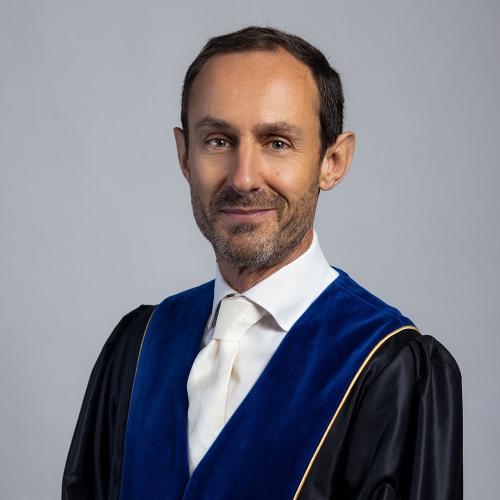
Emmanuel Gougé
Honourable JudgeUPC Court of Appeal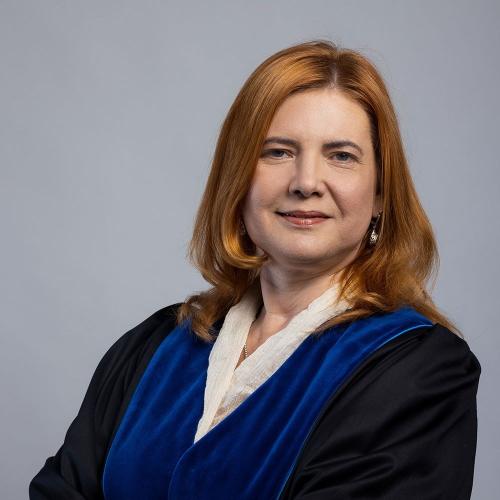
Kai Harmänd
Honourable JudgeUPC Court of First Instance
Peter Blok
Honourable JudgeUPC Court of Appeal
Antje Brambrink
PartnerFinneganDr. Antje Brambrink is qualified and admitted as an attorney at law in Germany. She advises and represents clients in complex patent disputes on all IP-related matters, often at the interface of antitrust and regulatory laws. Her expertise covers various fields of technology with a focus on pharmaceuticals, biotechnology, med-tech, as well as renewable energies and high-tech. Our clients appreciate Antje’s deep understanding of the life sciences sector based on her dual qualification as a licensed dentist.
As a patent litigator, Antje represents clients in infringement, preliminary injunction and inspection proceedings before German district and appeal courts as well as in nullity and compulsory license proceedings at the German Federal Patent Court and the Federal Supreme Court.
In addition to her work as a litigator, Antje advises clients strategically on all issues relating to intellectual property rights (patents, utility models, supplementary protection certificates), such as contracts for the licensing and transfer of rights also in connection with international transactions or the newly established Unified Patent Court (UPC). She has extensive experience in the European coordination of multinational patent disputes.
Prior to joining Finnegan, Antje practiced patent litigation for several years in the patent litigation teams of two international law firms seated in Germany. Antje’s medical and scientific background is of great benefit in advising clients from the life sciences sector. Renowned pharmaceutical, biotechnology and medical devices companies regularly seek her advice. She also advises in the field of renewable energies and in the enforcement of standard-essential patents.

Simon Walker
Technically Qualified JudgeUPCTime:11:40am - 12:30pmAgenda Track No.:Track 3Session Type:General Session (Presentation)Force Inline Description:0Using Parallel UPC and EPO Proceedings as a Strategic Tool
As the UPC enters its third year, litigants are increasingly testing the interplay between UPC actions and EPO oppositions. While UPC decisions are not binding on the EPO, both institutions stress the need for legal certainty and efficiency—yet divergent outcomes are still possible. This session examines how parties are using parallel tracks not only to defend or attack patents but also to shape settlement dynamics, licensing leverage, and litigation timing.
- Understand when the UPC is likely to stay proceedings in light of parallel EPO oppositions, including guidance from Astellas v. Healios, Toyota Motor v. Neo Wireless, Carrier v. Bitzer and Edwards v. Meril.
- Analyse the strategic implications of conflicting outcomes where the UPC and EPO maintain different amended forms of a patent.
- Explore tactical advantages for opponents in filing both EPO oppositions and UPC revocation actions, including accelerated proceedings and increased pressure on patentees.
- Evaluate how timing choices—whether simultaneous filings or staggered actions—can influence settlement leverage and long-term portfolio strategy.
Speaker(s):
Filip De Corte
Head of IPSyngentaFilip De Corte is Head of Intellectual Property at Syngenta Crop Protection, leading patent attorneys based in Switzerland, the UK, the US, The Netherlands and China. Filip joined Syngenta on October 1, 2013. Until then, he held the position of Chief IP Counsel Europe at Cargill (2008 – 2013). Before joining Cargill in 2008, he worked in the Johnson & Johnson patent department, working in Beerse with Janssen Pharmaceutica (1991-2004), New Brunswick (2004-2007), and Brussels (2007-2008). Filip has a Ph.D. in organic chemistry, he is a qualified European Patent Attorney and passed the US patent bar exam. He has the qualification of European Patent Litigation from the University of Strasbourg. He also has an MBA of the Vlerick School of Management. Filip taught patent law in Antwerp under the auspices of CEIPI (Université de Strasbourg) as well as at the University of Leuven in the IPR management course and is a lecturer in the CEIPI patent litigation course.

Frits Gerritzen
PartnerA&O Shearman
Jiri Slavik
Vice President- Intellectual PropertyAdalvo
Suzanne Wassmann
Lead Counsel- Patent LitigationSolvayTime:12:30pm - 13:15pmAgenda Track No.:Track 3Session Type:General Session (Presentation)Force Inline Description:013:15pm-14:15pmNetworking LunchFireside Chat: Caught between Scylla and Charybdis – what the lack of an “Amtsermittlungsgrundsatz” means for parties at the UPC
The UPC’s Milan Division has drawn new lines on procedural efficiency- finding both excessive invalidity attacks and late-filed arguments unacceptable. This 15 minute update examines the bioMérieux v Labrador decision and its implications for how defendants and plaintiffs must now calibrate their litigation strategy before the UPC.
Speaker(s):
Aloys Hüttermann
Patent AttorneyMichalski HüttermannTime:14:15pm-14:30pmAgenda Track No.:Track 3Session Type:General Session (Presentation)Force Inline Description:0Injunction Practice at the UPC: What Are We Learning So Far?
With the UPC issuing an increasing number of rulings, its developing case law on injunctions is critical for shaping enforcement strategies. For IP counsel and litigators, understanding how and when the UPC is willing to grant or deny injunctions - whether preliminary or permanent - is essential for advising clients, managing litigation risk, and crafting effective pan-European strategies.
• Review Grundfos v. Canned Motor Pump (Düsseldorf LD), where the court issued a permanent injunction despite ongoing licensing talks and clarified that lack of inventive step must be explicitly argued - not merely referenced via prior art.
• Analyse Boehringer v. Zentiva (Lisbon LD), in which the court denied provisional measures due to lack of proof of imminent infringement, offering key insights into evidentiary thresholds at the UPC.
• Understand the Milan LD’s approach to litigation costs in Ericsson v. Digital River and Oerlikon v. Bhagat, highlighting how procedural context and case complexity affect fee shifting.
• Discuss how this growing body of UPC injunction case law is influencing strategic decision-making across industries and jurisdictions.Speaker(s):
Ewan Nettleton
Principal IP Counsel- Oncology LitigationNovartis
Matthew Naylor
PartnerMewburn Ellis
Tobias Wuttke
PartnerBardehle Pagenberg
Charles Tuffreau
PartnerA&O Shearman
Eelco Bergsma
Director- AssertionEricsson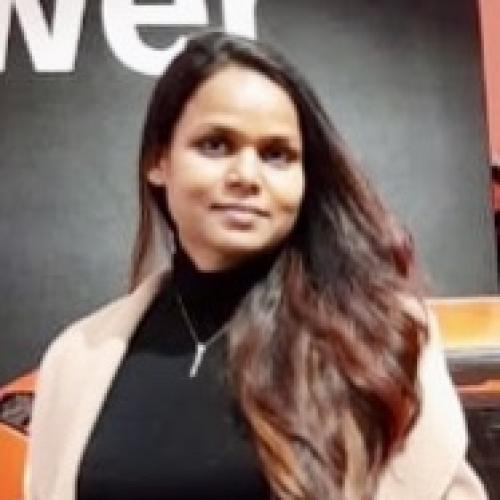
Sufiyah Sulaiman
Senior Patent Manager Patent LitigationSTADASufiyah Sulaiman is an attorney-at-law with a master’s degree in science. As an in-house patent litigation counsel of generic pharma giants, she has been managing their patent litigation and product launch-at-risk globally. At the moment, she is a senior manager (patent litigation) at STADA (Arzneimittel) AG, before that she was the Global IP litigation counsel for Sandoz (International GmbH) and, IP and regulatory litigation counsel for Mylan (now Viatris).
Time:14:30pm - 15:40pmAgenda Track No.:Track 3Session Type:General Session (Presentation)Force Inline Description:0UPC Case Law Review: A Discussion of the Trends and Changes Taking Place at Europe’s Newest Patent Court
As the UPC continues to take shape through early rulings, procedural clarifications, and appeals, legal teams across Europe are watching closely to understand how this new venue is redefining enforcement strategy. This session offers a practical review of the key decisions to date, considers procedural and jurisdictional trends, and examines the strategic calculus of litigating in the UPC versus national courts.
• Review recent UPC case law and appeals to understand emerging judicial approaches and procedural norms:
- Edwards Lifesciences v Meril (2025)
- Mul-T-Lock v IMC Créations (2025)
- Abbott Diabetes Care v Sibio Technology (2025)
• Examine strategic decision-making: when and why companies are choosing the UPC over national courts. Compare early UPC developments to UK patent litigation to identify points of convergence and divergence.Speaker(s):
Florian Muller
FounderIP Fray
Tjibbe Douma
PartnerBird & Bird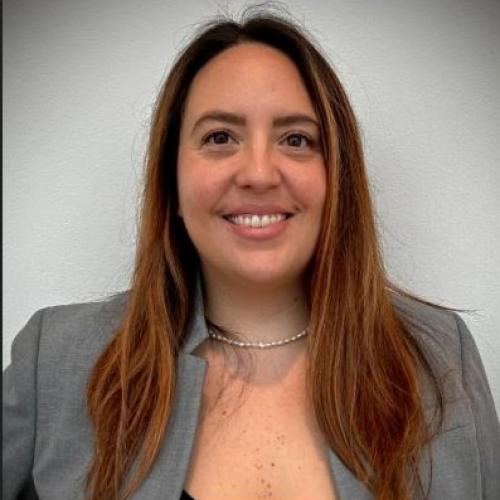
Raquel Frisardi
Associate Corporate CounselNovo NordiskTime:15:40pm - 16:25pmAgenda Track No.:Track 3Session Type:PanelForce Inline Description:016:25pm-16:55pmNetworking BreakUPC Strategy Session: Settlements, Prosecution and Cost Savings
The UPC is not just a litigation forum—it is also proving to be a strategic lever for in house counsel seeking faster resolutions, stronger negotiating positions, and cost effective enforcement. This session will examine how companies are recalibrating their patent prosecution and litigation strategies to take advantage of the UPC’s tight timelines, wide territorial scope, and growing body of case law on injunctions and costs.
• Explore how the mere filing of UPC cases—such as Ocado’s triple-action move against Autostore—can accelerate settlements in long-running, multi jurisdictional disputes.
• Understand how the UPC’s efficiency and Europe-wide reach heighten pressure on implementers, making the threat of an injunction a powerful driver of licensing outcomes.
• Examine how the UPC’s approach to proportionate injunctions and litigation cost allocation (e.g., Milan LD rulings) are influencing early settlement calculus and portfolio management.
• Discuss how in-house teams are adapting prosecution strategies—such as timing of unitary effect requests—to align with their risk tolerance and enforcement goals.
Speaker(s):
Sean Alexander
Head of IP StrategyUmicoreSean Alexander is a qualified European Patent Attorney as well as a Canadian and U.S. Patent Agent. He has worked in the IP field for many years and is currently the Head of IP Strategy (H&N) for Chr. Hansen in Denmark. Prior to joining Chr. Hansen, Sean headed the IP team at Elanco Inc. based in the Netherlands and was a Partner with Gowling WLG in Canada. Sean has been recognized as one of the world's leading IP strategists by IAM Magazine and is regularly praised for his pragmatic and commercially aware approach to IP.

Eric Whitaker
Chief Legal Officer10x Genomics
Sebastien Versaevel
PartnerTaylor Wessing
Farnaz Massoumian
Senior Patent AttorneyVodafoneTime:16:55pm - 17:40pmAgenda Track No.:Track 3Session Type:General Session (Presentation)Force Inline Description:0The Reach of the UPC: Long-Arm Jurisdiction and Strategic Considerations for Non Member States
As the UPC becomes more active, questions are emerging around its jurisdictional reach—particularly regarding its influence on companies and enforcement strategies in non-UPC countries like the UK and Spain. This session explores how far UPC decisions can stretch, and what it means for rights holders and litigants operating beyond its formal borders.
• Examine the potential extraterritorial effect of UPC decisions on non participating states. • Hear perspectives from UK, Spanish, and international counsel on the limits and risks of UPC long-arm jurisdiction.
• Explore defensive and offensive strategies for companies based in or targeting non-UPC jurisdictions.Speaker(s):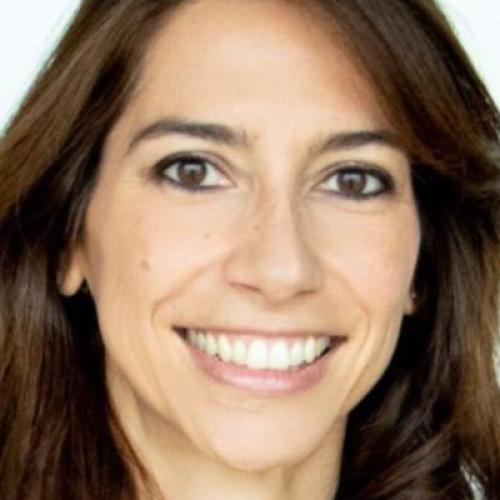
Beatriz Diaz de Escauriaza
Head of IP LegalInsud Pharma
Nina Bayerl
PartnerFreshfields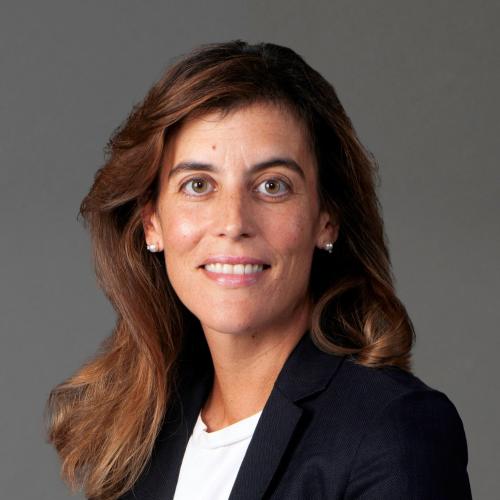
Patrícia Paias
PartnerAntas da Cunha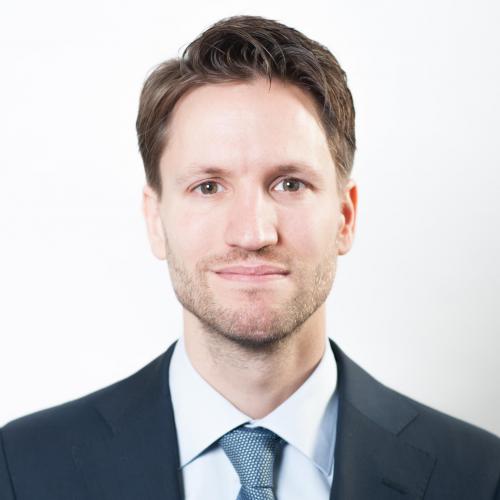
Gerben Hartman
LawyerCJEUGerben Hartman is a lawyer in the Research and Documentation directorate of the Court of Justice of the European Union (CJEU) since 2021, where he carries out preliminary analyses of references for a preliminary ruling and other case-related research. His work mainly focuses on all areas of Intellectual Property law. Previously (2010-2016), he worked as a lawyer at a top-tier law firm in the Netherlands. He completed his law studies at the university of Nijmegen (2009) and Stanford Law School (2017), followed by a four-year EU Marie Skłodowska-Curie fellowship at Queen Mary University of London, with secondments in the Legal Service of the European Union Intellectual Property Office (EUIPO) and in the cabinet of Judge Niilo Jääskinen at the CJEU.

Tim Harris
PartnerOsborne ClarkTime:17:40pm - 18:40pmAgenda Track No.:Track 3Session Type:General Session (Presentation)Force Inline Description:018:40pmChair Closing Comments -
Day One | Main Event (20th): Tuesday, 20 Jan, 202608:00am - 09:00amRegistration09:00am - 09:10amChairs’ Opening Remarks: Introduction to Patent Litigation Europe
Co-Chair's Opening remarks
Speaker(s):
Rien Broekstra
PartnerBrinkhof
Farnaz Massoumian
Senior Patent AttorneyVodafoneTime:09:00am-09:10amAgenda Track No.:Track 2Session Type:General Session (Presentation)Force Inline Description:0Co-Chair's Opening Remarks
Speaker(s):
Amandine Métier
PartnerHoyng Rokh MonegierTime:09:00am-09:10amAgenda Track No.:Track 1Session Type:General Session (Presentation)Force Inline Description:0Cross-Border Pharmaceutical Patent Litigation Cases and the Effect Upon Your IP Strategy
Cross-border litigation poses unique challenges and opportunities for the pharmaceutical and biotech industries. This panel will explore the complexities of managing patent litigation across multiple jurisdictions, strategies for harmonizing legal approaches, and the impact of international regulatory environments.
• Review the major cross-border case law and discuss the resulting IP effects from decisions such as: Tecfidera, Apixaban, Rivaroxaban, Glucose monitoring device cases, Paxlovid and Jardiance.
• Discuss common challenges faced in cross-border patent litigation, including jurisdictional issues, differing legal standards, and enforcement of judgments.
• Understand strategies for harmonising litigation approaches and minimising conflicting decisions.Speaker(s):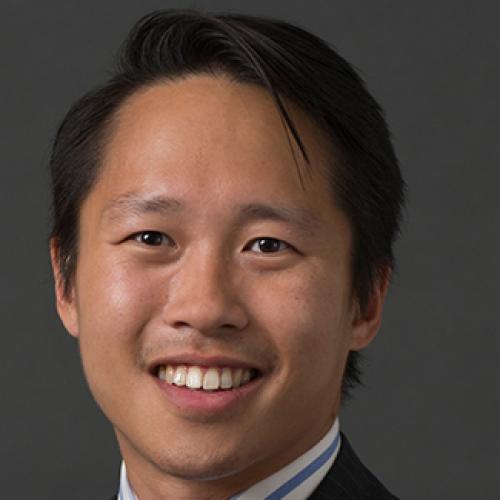
Daniel Lim
PartnerKirkland & Ellis
Elisabeth Haselhorst
IP Litigation CounselBayer
Raquel Frisardi
Associate Corporate CounselNovo Nordisk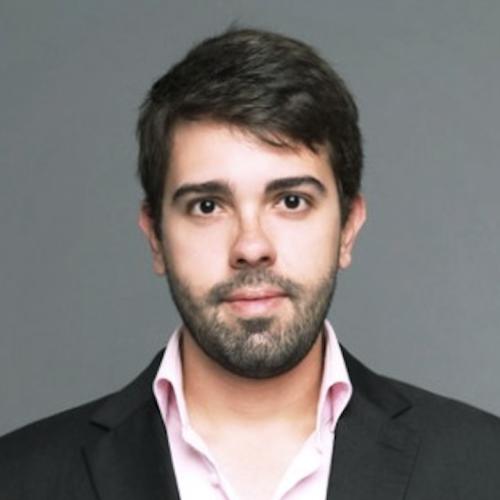
Rob Rodrigues
PartnerRNA law
Katherine Helm
PartnerDechertTime:09:10am - 10:00amAgenda Track No.:Track 1Session Type:PanelForce Inline Description:0Mediate, Arbitrate, License, Oppose or Litigate? Decisions for the Tech Sector
Navigating intellectual property disputes requires strategic decisions on the most effective resolution paths. This session explores the full range of options available to tech companies—from mediation and arbitration to licensing, opposition, and litigation. Gain insight into when each tool is best suited, how to manage IP portfolios proactively, support innovation teams, and balance the operational and financial impact of disputes on your business.
• Explore the expanding role of mediation and arbitration as faster, cost-effective alternatives to traditional litigation in various IP disputes.
• Understand the potential impact of the new UPC Mediation and Arbitration Centre in Ljubljana, and how it may change dispute resolution for European patent holders and implementers.
• Understand how strategic licensing and portfolio management can help avoid costly conflicts and support innovation.
• Discuss when to escalate matters through opposition proceedings or litigation and how to prepare for large-scale enforcement campaigns globally.
Speaker(s):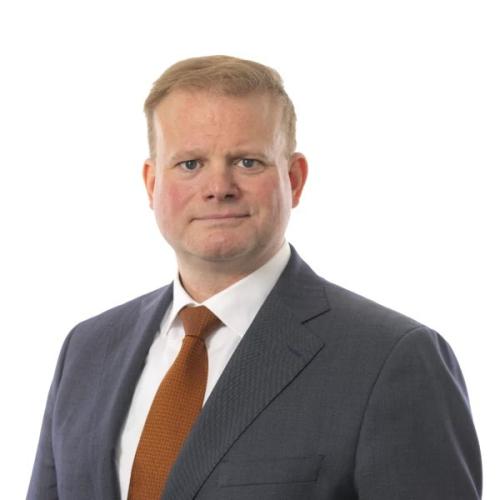
Bas Van Buul
Director of IPInalfa Roof Systems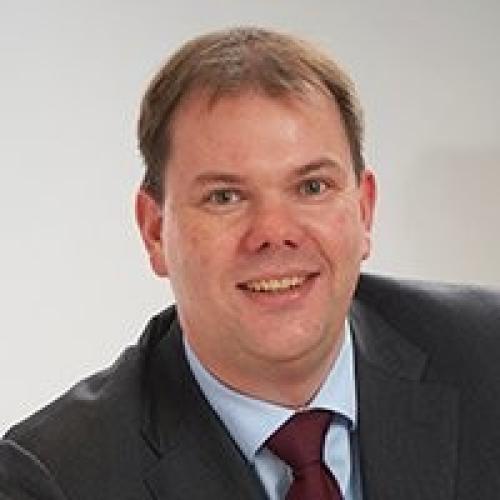
Jako Eleveld
Head of IP LicensingPhilips
Linnea Harnesk
Head of IP LegalAutoliv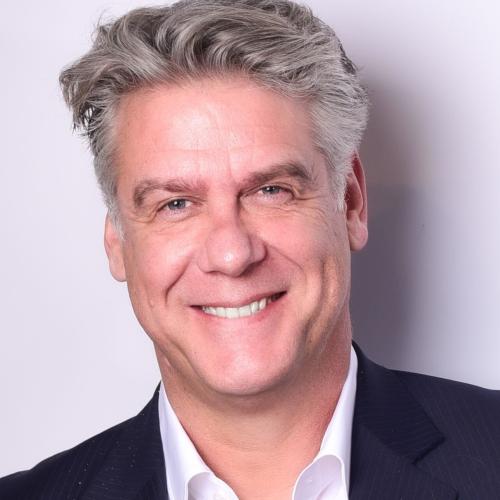
Volkmar Henke
PartnerBardehle PagenbergTime:9:10am - 10:00amAgenda Track No.:Track 2Session Type:General Session (Presentation)Force Inline Description:0Second Medical Use Strategies and Case Law Across Europe
Second medical use patents remain a cornerstone of value creation in the life sciences industry, but enforcement continues to be fragmented. This panel will compare recent decisions and enforcement strategies across the UK, UPC and key global jurisdictions.
• Examine the new UPC plausibility and infringement test and how it applies in practice?
• Review the significance of the first UPC decision at the Dusseldorf Local Division (2025).
- What does it mean for assessing knowledge, intent, and infringement risk?
• Discuss the comparison with the USA and the recent wave of Skinny Label litigation.
• Understand the landscape of prior disclosure (G1/23) and its impact on the patentability of second medical use patents, as well as formulations, crystal forms and polymorphs.Speaker(s):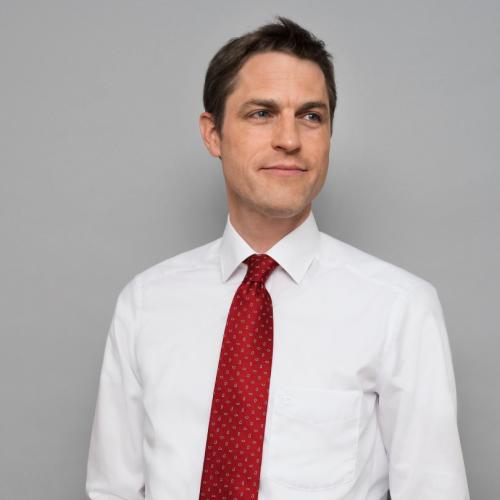
Axel Berger
PartnerBardehle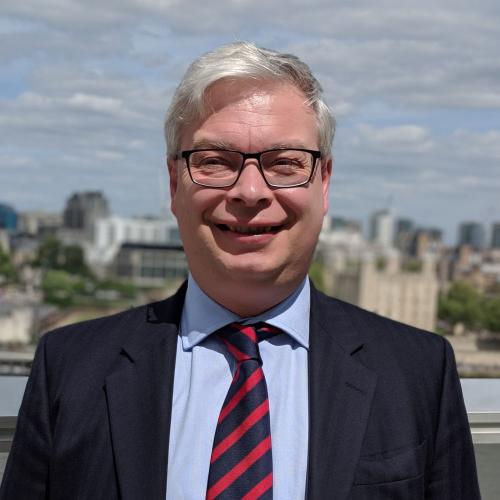
James Horgan
Chief IP Counsel- Policy & LitigationMSD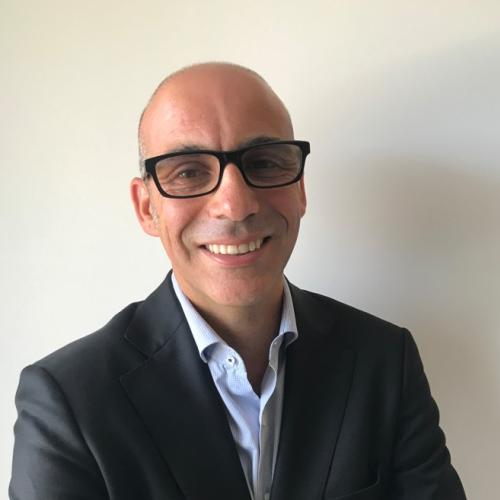
Toni Santamaria
Vice President Intellectual PropertyAdalvoToni has been leading the Intellectual Property team at Adalvo since 2021. He has more than 20 years of experience in different pharmaceutical companies where he has been involved in developing and implementing complex patent and data exclusivity litigation strategies for several generics and added value products, including leading parallel litigation cases in multiple European countries. He also has experience in patent and trademark prosecution.
Toni qualified as European Patent Attorney in 2010 and holds a PhD in Organic Chemistry.

Fiona Bor
VP - Intellectual PropertyBicycle Therapeutics
Laura Whiting
PartnerFreshfieldsTime:10:00am - 10:55amAgenda Track No.:Track 1Session Type:PanelForce Inline Description:0The Role of Competition Authorities within the Litigation and Licensing Landscape
Competition authorities are playing an increasingly influential role in shaping SEP and FRAND disputes worldwide. This session examines how regulators—from the European Commission to antitrust bodies in Brazil, India, and the US— are impacting injunction enforcement, licensing conduct, and broader litigation strategies. Panellists will discuss the political and consumer protection pressures driving authority interventions and how these forces interact with ongoing court cases and regulatory reforms.
• Analyse how competition authorities in Europe, Brazil, India, and the US influence injunction policies and SEP licensing practices.
• Discuss key investigations and decisions, including the European Commission’s amicus briefs and Brazilian antitrust probes into preliminary injunctions.
• Understand the evolving intersection of antitrust enforcement with SEP litigation and how it affects parties’ negotiation and enforcement strategies.
Speaker(s):
Carl-Alexander Dinges
PartnerBonabry
Ief Daems
Associate General CounselCisco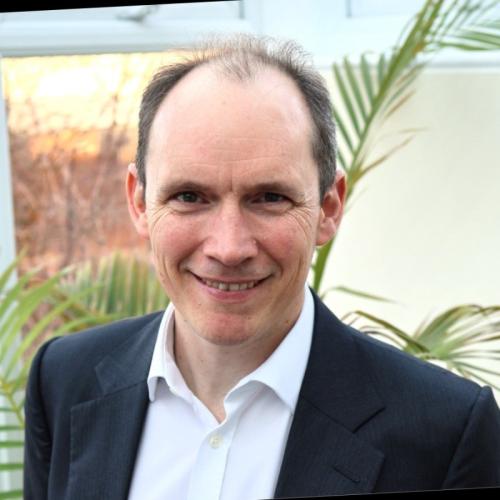
Adrian Howes
Head of IP and Standards- IP PolicyNokiaTime:10:00am - 10:45amAgenda Track No.:Track 2Session Type:General Session (Presentation)Force Inline Description:010:45am - 11:25amNetworking BreakThe Intersection of Life Science Patents and Antitrust Law
As patent enforcement strategies face growing scrutiny, competition law is increasingly influencing how life science companies manage exclusivity and market access. This session will unpack recent court and authority decisions across Europe, Switzerland, and the United States, spotlighting how regulators are drawing the line between legitimate IP enforcement and anti-competitive conduct. From divisional strategy concerns in the Copaxone case to the exoneration of Novartis by COMCO, attendees will gain a nuanced understanding of evolving antitrust standards and how to adapt their own IP strategy accordingly.
• Analyse the implications of the Copaxone divisional strategy case and what it signals about future antitrust enforcement in the context of IP gaming.
• Understand why COMCO cleared the Cosentyx® patent portfolio case and what it reveals about balancing freedom to operate and competition law.
• Explore the intersection of U.S. antitrust enforcement with FDA listing practices delistings, ANDA exclusivity, and the shifting impact of FTC and Federal Circuit decisions.
• Examine how China’s recent implementation of ANDA litigation and patent linkage modeled on the U.S. Hatch-Waxman system - is impacting exclusivity, competition, and antitrust scrutiny in both jurisdictions.Speaker(s):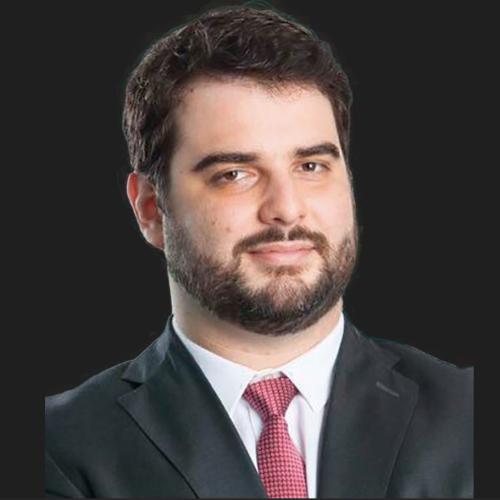
Eduardo Hallak
PartnerLicks AttorneyEduardo Hallak is one of the founding partners at Licks Attorneys and one of our leaders at the Sao Paulo office. For more than a decade, he has been working as a litigator before state and federal courts in Brazil in several complex disputes and leading cases involving Patent law, competition, and regulatory compliance, most of them pursuing the interests of clients in the area of life sciences. He also has extensive practice in trademark litigation as well as technology transfer contracts, working together with multinational clients to establish strong brand protection and licensing programs in the country. Mr. Hallak also currently teaches IP litigation in the Post-Graduation course at the prestigious Pontifical Catholic University of Rio de Janeiro (PUCRJ), has taught Civil Procedure at the at the Brazilian Association of IP Agents (ABAPI), and is often invited to lecture on procedural and strategic aspects of IP litigation, in addition to being a member of the Special Commission on Mediation of the Rio de Janeiro Chapter of the Brazilian Bar Association (OABRJ) and the Enforcement Committee of INTA.
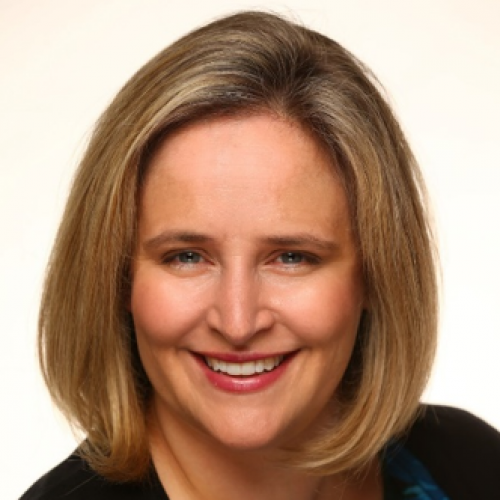
Julia Pike
Global Head of IPSandozSince March 2020, Julia has been the Global Head of IP for Sandoz. In her previous roles with Sandoz, she has had a leading role in the first wave of US biosimilars litigation, including the first litigations on critical aspects of the governing legislation (the Biologics Price Competition and Innovation Act or BPCIA), culminating in the landmark US Supreme Court decision, Sandoz v Amgen.
Since leaving private practice at Corrs Chambers Westgarth, Julia has been in-house counsel for many years including at Mayne Pharma and Hospira Inc before joining Sandoz in 2008. While there, she has taken on roles in European public affairs and led Sandoz’s global IP litigation function as Global Head of IP Litigation. Through those roles, she has maintained a keen interest in IP strategy and litigation worldwide, including cases arising under the Hatch-Waxman and BPCIA legislation in the US, PM(NOC) regulations in Canada and litigation arising from patent linkage systems around the world.
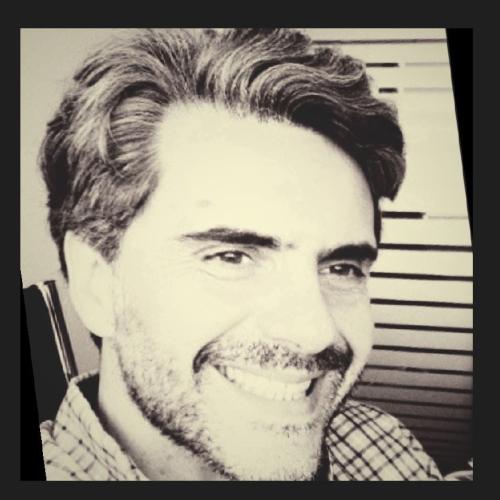
Philippe Bessiere
Global Head of PatentsPierre Fabre Group
Özge Atılgan Karakulak
PartnerGün + Partners
Laila Beynon
Director – Dispute ResolutionRegeneronLaila Beynon is Director, Dispute Resolution at Regeneron, responsible for the strategic co-ordination of ex-US patent litigation. She has a PhD in Biochemistry/Molecular Biology, 10 years’ private practice experience in life sciences patent litigation at Herbert Smith Freehills LLP, and prior to her role at Regeneron headed up the Patent Litigation team at BAT.
Time:11:25am - 12:15pmAgenda Track No.:Track 1Session Type:PanelForce Inline Description:0AI and the Impact Upon Global Patent Litigation Strategies
Is there a technology emerging more conspicuously than AI? Probably not. This session explores how AI is impacting patenting and patent litigation considerations worldwide. Understand the evolving challenges these technologies present, how patent enforcement strategies are adapting, and the legal frameworks, including the EU AI Act and DSM Directive, influencing IP management today.
- Discuss the intersection of AI development, patent creation, and prosecution, including implications of the EU AI Act and DSM Directive on IP strategy
- Understand why patent litigation remains the IP function’s primary focus amid AI’s rise, and the evolving landscape of trade secrets, copyright, and trademarks
- Discuss the impact of AI upon drug discovery and the inventorship considerations that companies must understand to make sure their products are litigation-proof
Speaker(s):
Peter Finnie
PartnerPotter Clarkson
Gael Tisack
Chief IP CounselAbbott
Katie Coltart
PartnerLinklaters
Yann Dietrichh
Group Head of IPAtosTime:11:25am - 12:10pmAgenda Track No.:Track 2Session Type:General Session (Presentation)Force Inline Description:0Judges Roundtable: Understanding Decisions and Perspectives from National and UPC Courts
Gain firsthand insight into how judges across Europe are approaching pharmaceutical and biotech patent litigation in both national and UPC forums. This session offers a rare opportunity to hear from the bench on key trends, procedural developments, and how judicial thinking is evolving post-UPC launch. Attendees will come away with a deeper appreciation for the considerations shaping decisions in complex cross-border disputes.
Speaker(s):
Colin Birss
ChancellorHigh Court of England and WalesSir Colin Birss was sworn in as Chancellor of the High Court in November 2025. He was called to the English Bar in 1990 and practiced in intellectual property law, taking silk in 2008. In 2010 Colin Birss went on the bench, first as judge of the Patents County Court (now IPEC) and then, in 2013, to the High Court. In 2019 became Judge in Charge of the Patents Court. Colin was sworn in as a Lord Justice of the Court of Appeal in 2021 and took up a senior leadership role as the Deputy Head of Civil Justice until November 2025.
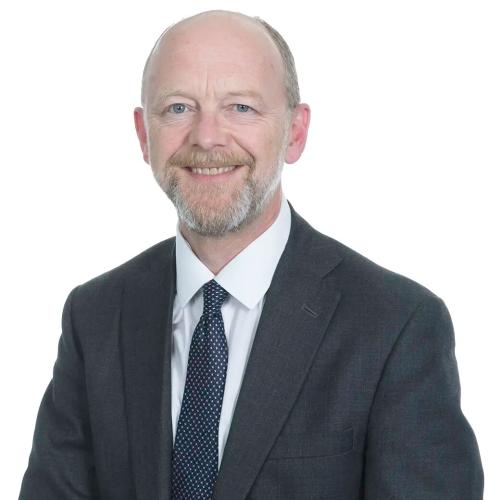
Paul Inman
PartnerGowling WLGWith a first degree in Molecular Biology and Biochemistry and more than 30 years' experience of litigating intellectual property disputes, Paul Inman draws on his deep sector insight to advise a wide variety of clients across many jurisdictions. While experienced across a range of industries, Paul specialises in the life sciences sector and has worked with clients ranging from multi-national businesses, pharma and medical device companies, to research bodies, chemical companies and small start-ups.
His work has included acting on high-profile pharmaceutical and biotech patent infringement and revocation actions in the UK Patents Court, and more recently on UPC actions. In addition, Paul's interest and expertise in the life sciences sector has seen him advise on regulatory work concerning European pharmaceutical bodies. He is also experienced in acting for a wide range of patent and design proprietors.
Whether "success" is measured by getting the right court order at the end of the dispute or evaluating and reaching the right commercial settlement between the parties beforehand, a thorough and balanced assessment on each case is critical. The ultimate aim for Paul is to provide his clients with well-rounded advice and guidance to ensure the best possible outcome.
Paul's background in molecular biology and biochemistry means he can take on highly complex pharmaceutical or biotechnological inventions, as easily as less technical (but equally important) mechanical patents and designs.
Successfully guiding clients through the maze of litigation is where Paul's strength lies, having now been involved over 30 years in the field of litigation with his cases leading to more than 60 reported judgments, ranging from the tribunals of the UK Patent Office (UKIPO) up to the UK Supreme Court (formerly the House of Lords), European Patent Office (EPO) and European Court of Justice (CJ EU).
As well as litigating in the English courts, Paul has co-ordinated and advised on IP and regulatory litigation matters across the globe, as far afield as the US, South Africa, Malaysia, the Philippines, Australia and New Zealand, and closer to home in the UPC, Scotland, Ireland, France, Germany, Holland, Denmark, Sweden. Norway, Belgium, Spain, Portugal, Italy and Greece.
Paul is ranked as a leading individual in Chambers UK for both Patent Litigation and Life Sciences. He is also recognised in the 'IAM Patent 1000' global rankings and in the 'Best Lawyers®' UK 2025 guide.
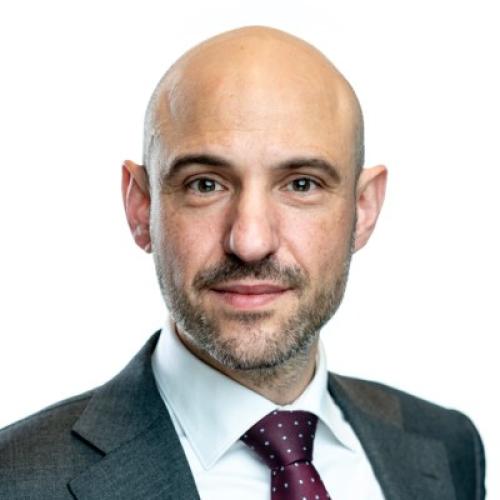
Andras Kupecz
Honourable JudgeUPC Munich Central Division
Kai Harmänd
Honourable JudgeUPC Court of First InstanceTime:12:15pm - 13:00pmAgenda Track No.:Track 1Session Type:WorkshopForce Inline Description:0The Power of the Injunction: Discuss Central Cases and Jurisdictions within the SEP & FRAND Litigation Landscape
With injunctions becoming a decisive battleground in global SEP and FRAND disputes before the German courts and UPC, this session explores how courts across key jurisdictions are shaping access to—and constraints on—injunctive relief. From the Vodafone/HMD matter in Germany to expanding dockets in Brazil, India, and China, this session unpacks strategic use of injunctions by both SEP holders and implementers, while spotlighting where legal frameworks may shift next. Explore how national courts and the UPC are interpreting proportionality, the influence of the European Commission, and the contrasting positions across global IP enforcement venues.
- Compare how courts in Germany, the UK, the UPC, and the US weigh proportionality, public interest, and enforcement policy when determining injunction relief in SEP cases
- Explore how jurisdictions like Brazil and Colombia are shaping global negotiations through low-cost, fast-granting preliminary injunctions and limited review of FRAND defences
- Discuss the possibilities of injunctive relief in the USA and a change from the eBay standard
Speaker(s):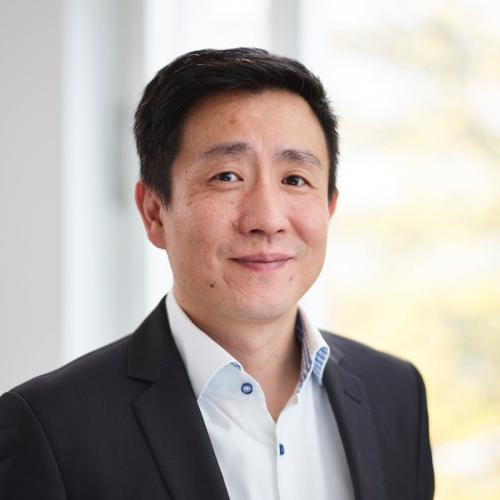
Le Chen
Senior Director- IP Policy & Dispute ResolutionXiaomi Technology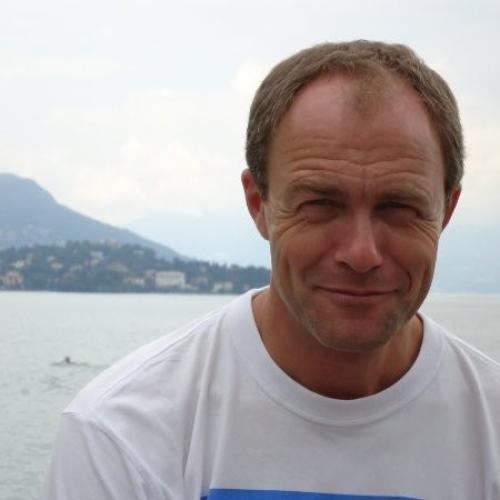
Koenraad Wuyds
Chief IP OfficerKPN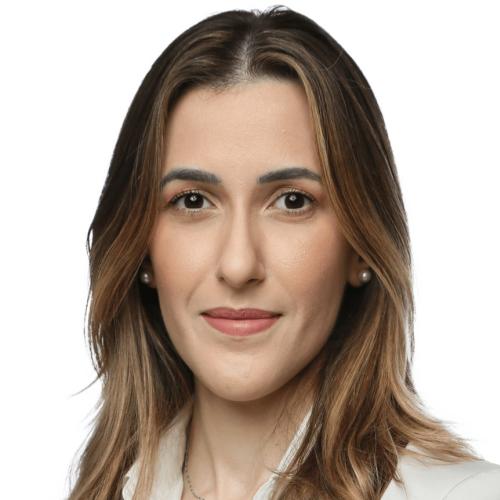
Tatiana Alvez
PartnerRNA Law
Daniel Lim
PartnerKirkland & EllisTime:12:15pm- 13:10pmAgenda Track No.:Track 2Session Type:General Session (Presentation)Force Inline Description:0Industry Perspective: Illicit Compounding of Medicines in Europe
This 10 minute presentation will provide you with an exploration of how illicit compounding intersects with
patent protections, market exclusivity, and the proposed EU pharma package revisions shaping the future of
pharmaceutical innovation.Speaker(s):
Raquel Frisardi
Associate Corporate CounselNovo NordiskTime:13:00pm-13:10pmAgenda Track No.:Track 1Session Type:General Session (Presentation)Force Inline Description:013:10pm - 14:10pmNetworking LunchBolar Exemptions and Safe Harbor – Navigating Litigation and Legislative Changes
This session will examine the impact of recent case law and forthcoming legislative reforms on Bolar exemptions and safe harbor provisions in the US and Europe. Experts will discuss how evolving legal frameworks affect patent enforcement strategies, particularly concerning timing for preliminary injunctions and defining “imminent infringement.” Key cases and jurisdictional nuances will be analysed to help patentees and generics understand the shifting landscape.
• Review recent US case law on the § 271(e)(1) research exemption and its enforcement implications.
• Analyse anticipated changes to the European Medicines Directive broadening the Bolar exemption and their effects on patent litigation.
• Discuss jurisdictional differences in preliminary injunction trigger points and the challenges posed by the UPC’s holistic approach to imminent infringement.Speaker(s):
Christoph Rehfuess
Head of IPSotio
Cecile Teles
Head of IPZentivaCecile is Head Patent Attorney at Zentiva. She has over a decade of experience in the pharmaceutical industry.
Cecile is uniquely experienced and knowledgeable in the pharma space as she has experience in-house at an elite innovator company (Sanofi), biologics (Merck Serono), and extensive generic experience she gained as Zentiva.
Cecile is an enthusiastic manager of her team and was a key member of the IP team in leading the transformation of Zentiva into an independent and competitive generic company after divestment from Sanofi.
Cecile is a qualified European Patent Attorney. She also holds a certificate from CEIPI in patent litigation and most recently completed her diploma as a Master of Laws in France.

Eleanor Root
PartnerBird & Bird
Maria Balestriero
Of CounselPortolano CavalloTime:14:10pm - 15:00pmAgenda Track No.:Track 1Session Type:PanelForce Inline Description:0National Courts vs the UPC: Venue Selection and Decision Making for the Tech & Innovation Industries
As the UPC establishes its position in the European IP landscape, the tension between national courts and the UPC is growing more pronounced. From Germany’s increasingly patentee-friendly stance to the emerging strategic importance of UPC first-instance decisions, this session unpacks the evolving dynamics shaping venue selection. With leading jurisdictions competing for relevance and consistency, legal teams must carefully weigh litigation strategies, timelines, and judge behaviour across venues. This session explores what’s driving decision-making in general technology patent litigation cases, FRAND and SEP disputes, and how industry stakeholders are navigating a fragmented, fast-moving litigation environment.
• Compare litigation strategy and outcomes between the UPC and key national courts, including Germany and the UK.
• Assess how judicial behaviour, timing, and appeal prospects are influencing venue selection in high-stakes tech disputes.
• Understand the impact of important case law at the UPC, including Panasonic vs Oppo (2024) and determine your strategy accordingly.
Speaker(s):
Florian Schmidt-Bogatzky
PartnerHSF Kramer
Clemens Heusch
Head of Global Disputes and ResolutionNokia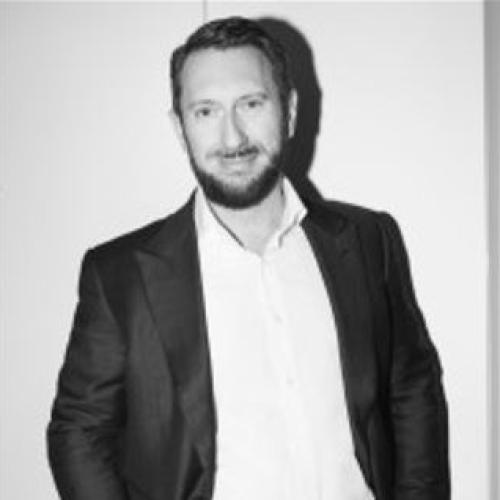
Alexander Haertel
Cluster Lead PatentsDeutsche Telekom
Vanesssa Von Hadeln
IP ManagerSES SatellitesTime:14:10pm - 15:00pmAgenda Track No.:Track 2Session Type:General Session (Presentation)Force Inline Description:0Multi-Jurisdictional Biologics and Biosimilar Litigators Review: The UPC ,UK, Türkiye, Canada and the USA
This session provides an in-depth analysis of recent high-profile biologics and biosimilar patent disputes across Europe, the USA, and Asia, including landmark cases involving Xtandi, Soliris, and antibody exclusivity challenges. Attendees will explore how evolving case law, patent claim constructions, and regulatory developments are shaping exclusivity periods, enforcement strategies, and market entry pathways. The session will also address comparative litigation trends, strategic patent considerations, and the complexities of navigating both branded vs branded and biosimilar patent conflicts globally.
• Examine key European rulings on Xtandi and Soliris patents, including patent validity challenges and injunction decisions.
• Analyse evolving antibody patent standards post-G2/21, Amgen vs Sanofi, and their impact on inventive step and exclusivity in the US and Europe.
• Explore strategic insights on BPCIA litigation timing, branded vs branded biologics disputes, and regulatory pathways for biosimilar market entry.Speaker(s):
Frank Landolt
Chief Counsel IP & LegalConfo TherapeuticsFrank Landolt is Chief Counsel, Intellectual Property and Legal at Confo Therapeutics, a privately held biopharmaceutical start-up based in Ghent, Belgium specializing in GPCR-targeted therapeutics.
After studying chemistry and law at the University of Leiden in the Netherlands, Frank worked for almost ten years on pharmaceutical and biotechological patents and licensing in private practice in the Netherlands, where his clients included major pharmaceutical companies as well as some of the top biotech firms and research institutions in the Netherlands.
Prior to joining Confo in 2018, Frank worked for fifteen years in Ablynx N.V. (now a wholly owned Sanofi company), where he was a member of the management team and headed an integrated IP and legal group of four lawyers and five patent professionals. At Ablynx, Frank was involved in negotiating Ablynx’s strategic partnerships and licensing deals with AbbVie, Boehringer-Ingelheim, MSD, Merck-Serono, Novartis, Novo Nordisk, Sanofi and Wyeth.
From 2000 to 2004, Frank was director of IP and legal counsel at Devgen N.V. (now part of Syngenta), another Ghent-based biotechnology company, where he was involved in negotiating Devgen’s strategic collaborations with Sumitomo, Monsanto and DuPont Pioneer.
Frank is a Dutch and European patent attorney, and also holds a degree in business law from the University of Antwerp. He is a member of the Dutch association of patent attorneys (where he is a tutor for the professional qualification course), EPI and LES Benelux (where he is involved in the LES Licensing Course). He is a regular speaker on a range of topics relating to IP and licensing in the (bio)pharmaceutical sector. Frank was named as one of Managing IP’s ‘Corporate IP stars’ for four years in a row (2015-2018).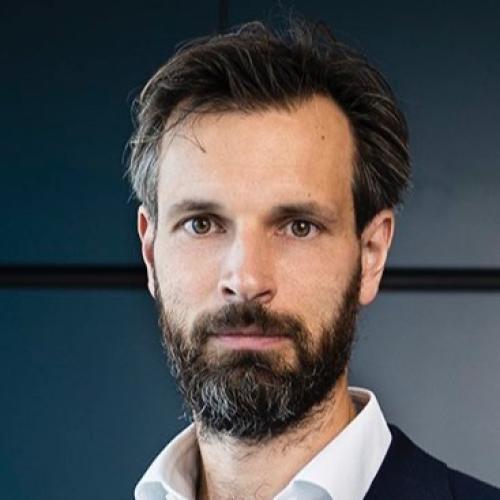
Peter van Schijndel
PartnerHoyng Rokh Monegier
Gemma Barrett
PartnerA&O ShearmanGemma is an experienced and trusted advisor for some of the world’s leading life sciences and chemical companies. Her background in biochemistry means she specialises in complex technical disputes in the life sciences sector. She has more than fifteen years’ experience advising clients in patent litigation matters before the English Courts including securing preliminary injunctions. She is also experienced in advising on global cross-border litigation, and coordinating worldwide litigation, working closely with multi-disciplinary teams in the defence and enforcement of patent portfolios. She has developed innovative and successful strategies, often combining patent and regulatory law, to assist pharmaceutical companies in the enforcement of their rights.

Selma Ünlü
Senior PartnerNSN Law
James Holtom
PartnerMcCarthy Tetrault
Gwilym J.O. Attwell
PrincipalFish & RichardsonTime:15:00pm - 16:00pmAgenda Track No.:Track 1Session Type:PanelForce Inline Description:0UK Interim Licences and the Future of SEP Litigation
The UK Court of Appeal has recently endorsed interim FRAND licences in cases such as Panasonic v. Xiaomi, Nokia v. Amazon, and Lenovo v. Ericsson. These rulings aim to maintain commercial balance during litigation by ensuring implementers pay royalties while limiting coercive injunction strategies. This session considers how such measures could influence UPC practice and reshape multi-jurisdictional SEP disputes.
- Analyse the UK Court of Appeal’s approach to interim licences and their role in SEP/FRAND enforcement strategy
- Discuss the potential impact of UK practice on UPC jurisprudence and multi-jurisdictional coordination
- Compare the UK’s approach with practices in Germany, the US, and China, where interim licences remain largely untested
- Consider whether interim licences may reduce forum shopping, limit abusive injunction tactics, and promote earlier global settlements
- Discuss the effect of interim licences on the global SEP and FRAND landscape
Speaker(s):
Evelina Kurgonaite
Secretary GeneralFair Standards Alliance
Peter Pereira
PartnerKirkland & Ellis
Scott Hayden
Chief IP OfficerAmazon
Clemens Heusch
Head of Global Disputes and ResolutionNokiaTime:15:00pm-16:00pmAgenda Track No.:Track 2Session Type:General Session (Presentation)Force Inline Description:0Decoding G1/23 and Understanding How BOA Decisions Shape Product Launch Strategy
This 20 minute session unpacks the implications of G1/23 and explores how recent Board of Appeal decisions are reshaping product launch strategies in Europe. Gain practical insights into how these rulings affect exclusivity, regulatory interplay, and the timing of market entry.
Speaker(s):
James Horgan
Chief IP Counsel- Policy & LitigationMSD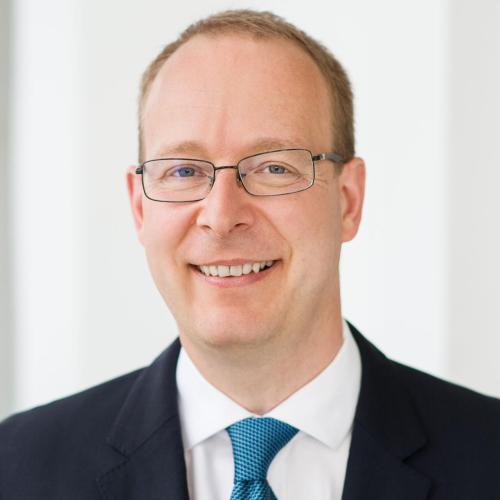
Carsten Richter
Head of IPEuroimmunTime:16:00pm-16:20pmAgenda Track No.:Track 1Session Type:PanelForce Inline Description:0Tech & Innovation Networking Break
Agenda Track No.:Track 2Session Type:General Session (Presentation)16:00pm-16:50pmNetworking Break16:50pm-18:25pmConnect 26! Roundtable DiscussionsUK - SPC Masterclass: Outstanding issues under the SPC Regulation and recent developments
Speaker(s):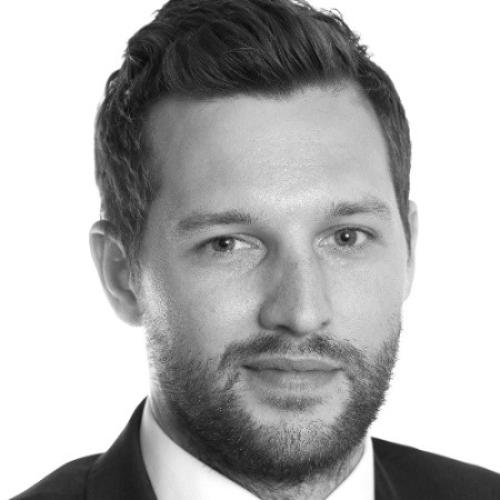
Dan McGrath
PartnerMarks & ClerkDan is an experienced patent litigator who advises clients on a wide range of intellectual property issues. He has considerable experience in biopharmaceutical patent and supplementary protection certificate litigation and has represented clients in some of the most complex technical disputes tried in the English courts. Dan also has significant expertise in litigation before the Unified Patent Court and is currently instructed on several high-profile patent disputes. Dan sits on the BioIndustry Association's IP Advisory Committee and its SPC sub-committee.
In the UK, Dan has advised clients in actions in the High Court and Court of Appeal. Dan regularly manages multi-jurisdictional disputes, co-ordinating and working with litigation teams globally. He has been involved in hearings at the Unified Patent Court, European Patent Office, District Court in The Hague and in North America.
With a keen interest in scientific innovation, Dan is readily able to master highly technical issues and has a strong grasp of the technical and commercial landscape in which his clients operate

James Horgan
Chief IP Counsel- Policy & LitigationMSDAgenda Track No.:Track 1Force Inline Description:0France - Lessons from Mediation in Patent Disputes at the UPC and in France
Speaker(s):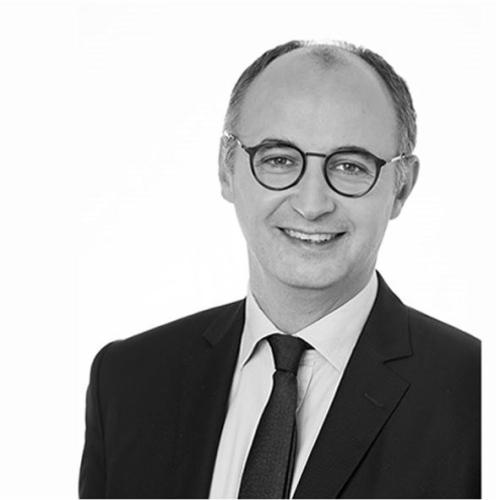
Camille Pecnard
PartnerLavoix
Aude Veinante
European Patent AttorneyLavoixAude assists her clients in defining their patent strategy. Aude drafts new patent applications and monitors grant procedures in France and abroad. Her work also includes conducting patentability, validity and freedom to operate studies as well as forming consultations relative to supplementary protection certificates (SPCs).
Aude performs audits in the pharmaceutical and life science fields and advises her clients in case of patent disputes.
Aude is a member of the AIPPI (International Association for the Protection of Intellectual Property) and the GRAPI (Groupe Rhône-Alpes pour la protection de la Propriété Intellectuelle [Rhône-Alpes Group for the Protection of Intellectual Property]). She is also a lecturer at the Bordeaux National School of Biomolecule Technology.

Pierre-Emmanuel Meynard
PartnerLavoixAgenda Track No.:Track 3Force Inline Description:0Global- How are In-house and Law Firm Attorneys Using AI to Optimise their Workflows?
Speaker(s):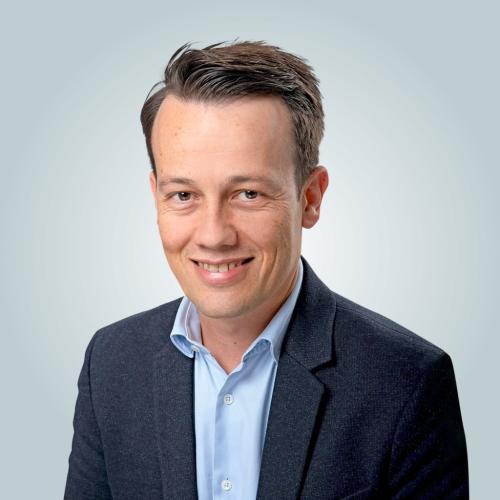
Andre Andrade
Vice President, Client Relations EMEA and Law FirmsRWSAgenda Track No.:Track 3Force Inline Description:0Europe - The Interaction between the SPC Manufacturing Waiver and the Bolar Exemption
Speaker(s):
Aoife Murphy
PartnerDLA Piper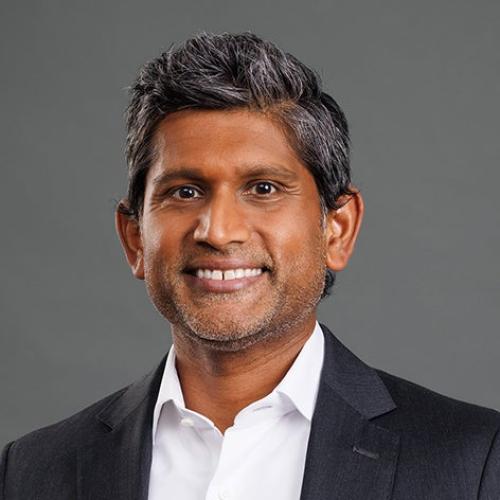
Dr. Kokularajah Paheenthararajah
Partner, Head of Life Sciences, GermanyDLA PiperAgenda Track No.:Track 1Europe (2) - The Interaction Between the EPO, UPC and National Courts for a Comprehensive Patent Strategy
Speaker(s):
Claudia Milbradt
PartnerClifford Chance
Josep Montefusco
PartnerClifford ChanceAgenda Track No.:Track 3Poland - Generics on the offensive: Poland as the new arena for PI battles (rivaroxaban, apixaban, dapagliflozin, and more)
Speaker(s):
Mariusz Kondrat
Managing PartnerKondrat & Partners
Dawid Sierzant
PartnerSDP Sierzant Dudzinski
Chris Dudzinski PhD
PartnerSDP Sierzant DudzinskiAgenda Track No.:Track 1Europe (3) - One Year Later, The Developments Since the European Commission DG Competition Teva Copaxone Decision
Speaker(s):
Paul Wiegel
Senior Patent CounselSandozAgenda Track No.:Track 1Force Inline Description:0Europe (4)- Bolar Exemption Under the New Pharma Package
Speaker(s):
Robert Stephen
PartnerCMS
Jean-Baptiste Thienot
PartnerCMS
Jeroen Boelens
PartnerCMSAgenda Track No.:Track 1Session Type:General Session (Presentation)Force Inline Description:0USA (2) - Hatch Waxman Litigation Review in the USA
Speaker(s):
Rae Crisler
PrincipalFish & RichardsonAgenda Track No.:Track 1China - Understanding the New PTE in China
Speaker(s):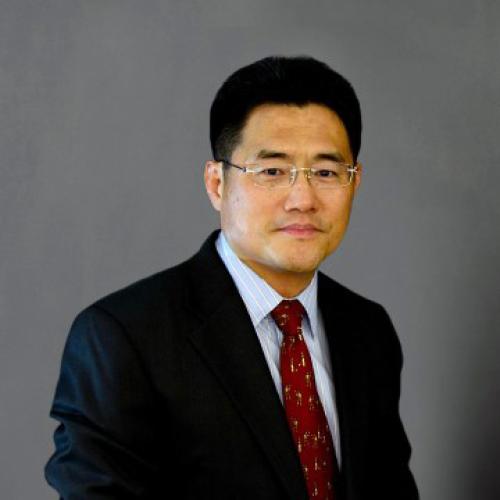
James Zhu
PartnerJunHe LLPAgenda Track No.:Track 1USA (3)- U.S. IPR/PGR Discretionary Denials: How to Navigate the New Rules and Hostility to Petitioners
This roundtable examines the PTAB’s evolving approach to discretionary denials in IPR and PGR proceedings, Participants will share practical strategies for timing, forum selection, and petition design to improve survivability in an increasingly hostile U.S. post-grant landscape
Speaker(s):
Rob Cerwinski
PartnerGemini Law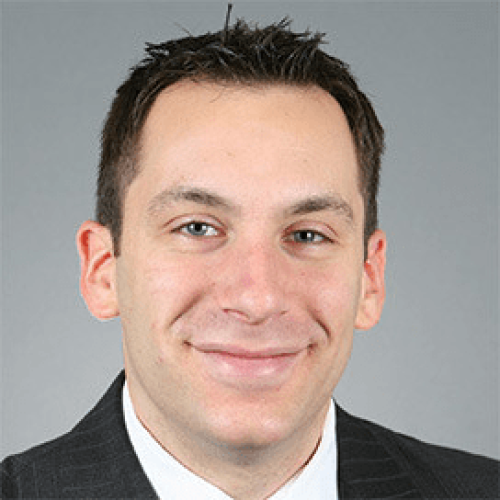
Mike Cottler
PartnerGeminiAgenda Track No.:Track 1Force Inline Description:0USA - Navigating AI in U.S. IP Litigation
Speaker(s):
Lauren Baker
AssociateBarnes & Thornburg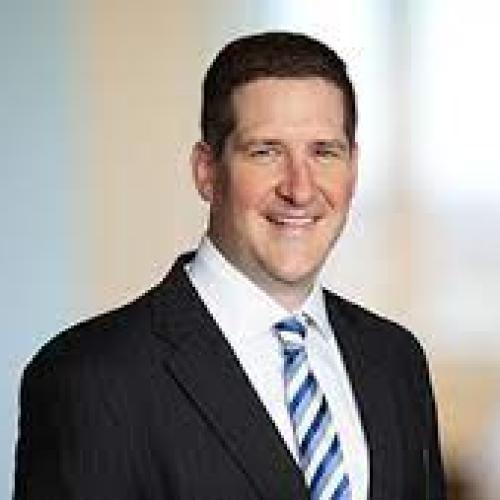
John Cox
PartnerBarnes & ThornburgWith deep knowledge of issues facing the life sciences industry, John Cox counsels clients regarding their worldwide intellectual property rights and represents their patent interests when litigation arises, particularly regarding pharmaceutical, chemical, and biotechnology matters. John takes his role in protecting these important assets of life science innovators very seriously while approaching each matter with enthusiasm.
Through his ability to communicate effectively and succinctly, John advises on, develops, and carries out global IP strategies for the benefit of innovative companies, his clients, who are focused on developing core assets that save and improve the lives of patients. John enjoys leveraging his unique ability to put together targeted and enduring teams for each matter – paying close attention to each person’s strengths and skillsets and how they fit with one another, alongside his highly specialized experience and thoughtful and responsive nature.
John is intimately familiar with the pharmaceutical industry, having dealt with patent and IP subject matter ranging from brain chemistry, the gastrointestinal system, drug delivery systems and treatments of rare diseases and cancer to medical diagnostic methods, the generation of biofuel using bacteria, and processes for manufacturing chemicals and pharmaceutical products. He also has almost two decades of experience in Abbreviated New Drug Application (ANDA) cases, including pre-litigation investigations.John offers guidance from the first step of a matter through to resolution, including all aspects of litigation. He has extensive experience related to discovery and motion practice, as well as in developing offensive and defensive strategies. He is well versed in dealing with complex subject matter and technical witnesses, such as inventors and experts.
John adeptly helps clients navigate the crossroads of foreign business practices and the complexities of U.S. patent practice, having worked with foreign pharmaceutical, chemical, and biotechnology companies throughout his career.Agenda Track No.:Track 3Europe- Patentability of AI-related and AI-derived inventions
Speaker(s):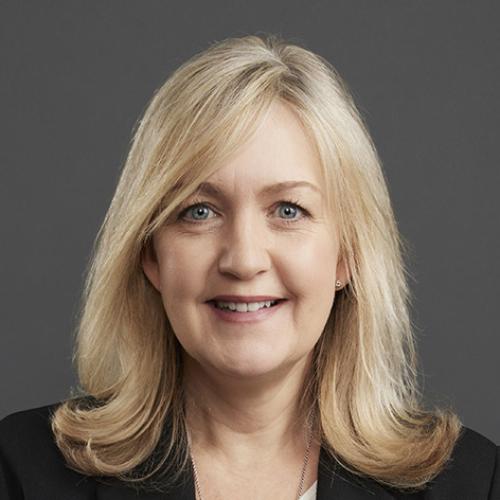
Rebecca Lawrence
PartnerDLA Piper
Dr Philipp Cepl
PartnerDLA PiperAgenda Track No.:Track 3Global- AI-Enabled Patent Strategy in Pharma & Biotech
Speaker(s):
Andrew Riley
Strategic BD Lead & IP CounselPatlyticsAgenda Track No.:Track 1Force Inline Description:0Europe- Fair Standards Alliance Roundtable: FRAND, Innovation and Enforcement in Europe
Speaker(s):
Evelina Kurgonaite
Secretary GeneralFair Standards AllianceAgenda Track No.:Track 2Session Type:General Session (Presentation)Force Inline Description:0Europe- Common Mistakes Before the UPC (and Why They May Have Felt Right at First)
Speaker(s):
Andrej Michalik
PartnerAltius De Clercq
Koen Vanhalst
PartnerAltius De Clercq
Kirian Claeyé
PartnerAltius De ClercqAgenda Track No.:Track 3Session Type:General Session (Presentation)Force Inline Description:0UK (Roundtable 2) - Interim License Strategies in SEP Litigation: Navigating FRAND, Injunction Risks, and Cross-Jurisdictional Impact
Agenda Track No.:Track 2Session Type:General Session (Presentation)China - Turning Litigation into Leverage in SEP Disputes
Agenda Track No.:Track 2Session Type:General Session (Presentation)India - Interim Relief and Damages within Indian Patent Litigation
Speaker(s):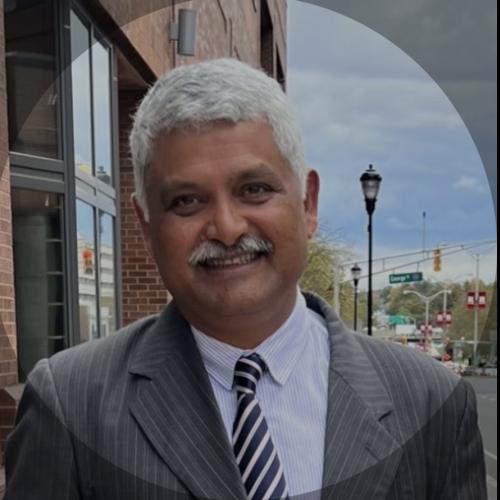
Dr. Sanjay Kumar
Managing PartnerPerfexio Legal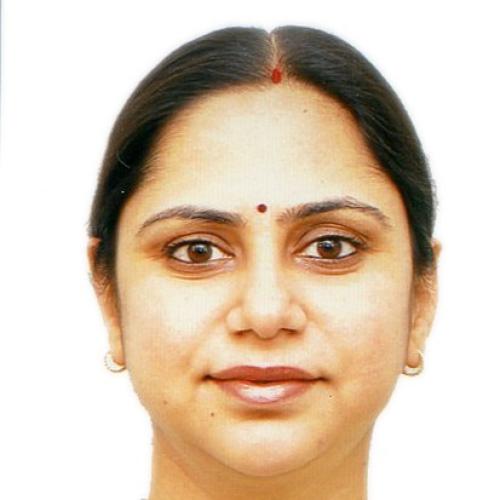
Arpita Sawhney
PartnerPerfexio LegalAgenda Track No.:Track 3Session Type:General Session (Presentation)Force Inline Description:0UK: The Role of the UK Court in a UPC Context
Speaker(s):
Nick McDonald
PartnerMarks & ClarkAgenda Track No.:Track 3Session Type:General Session (Presentation)Force Inline Description:0Global - The Power of the Preliminary Injunction in Global SEP Negotiations
The Power of the Preliminary Injunction in Global SEP Negotiations
Agenda Track No.:Track 2Session Type:General Session (Presentation)Turkey- Enforcement Strategies for Turkish Jurisdiction
Speaker(s):
Okan Can
Senior PartnerDerisAgenda Track No.:Track 3Session Type:General Session (Presentation)Force Inline Description:018:25pmChair Ends Day 118:25pmNetworking Drinks Reception -
Day Two | Main Event (21st): Wednesday, 21 Jan, 202607:30am - 08:45amRegistration
Global Patent Injunctions: Litigation Strategies Across Jurisdictions
This breakfast session reviews how courts worldwide are approaching patent injunctions post-UPC launch. Hear perspectives on jurisdictional divergences, evolving standards for proportionality, and the practical risks for cross-border enforcement. Gain clear takeaways on how to manage litigation strategy where remedies remain uncertain and fragmented.
Speaker(s):
Jules Fabre
PartnerTaylor Wessing
Amanda Ebbutt
PartnerTaylor Wessing
Gisbert Hohagen
PartnerTaylor WessingTime:8:00am - 8:45amAgenda Track No.:Track 3Session Type:General Session (Presentation)Force Inline Description:08:45am-8:50amChair’s Recap of Day 1 and Introduction to Day 2Keynote Interview from Lord Justice Birss on Certainty and Change in Patent Law
Lord Justice Birss will open the Summit with a keynote session addressing the tension between legal certainty and rapid change in patent law. Drawing on recent patent litigation cases, he will outline how courts are approaching complex exclusivity disputes and what this means for counsel navigating the current IP climate.
Speaker(s):
Colin Birss
ChancellorHigh Court of England and WalesSir Colin Birss was sworn in as Chancellor of the High Court in November 2025. He was called to the English Bar in 1990 and practiced in intellectual property law, taking silk in 2008. In 2010 Colin Birss went on the bench, first as judge of the Patents County Court (now IPEC) and then, in 2013, to the High Court. In 2019 became Judge in Charge of the Patents Court. Colin was sworn in as a Lord Justice of the Court of Appeal in 2021 and took up a senior leadership role as the Deputy Head of Civil Justice until November 2025.

Jason Raeburn
PartnerPaul HastingsTime:8:50am-9:10amAgenda Track No.:Track 3Session Type:General Session (Presentation)Force Inline Description:0Preliminary Injunction Review for the Life Science Sector
Injunctions can be decisive in life sciences patent litigation, particularly in fast-moving markets. This session delivers a strategic overview of recent developments in preliminary injunctions across the UPC, Europe, and the United States, helping patent holders and challengers alike prepare for high-stakes enforcement in 2025. With a cross-border perspective, expert speakers will unpack emerging trends, legal thresholds, and jurisdictional contrasts shaping the availability and strength of injunctive relief.
• Explore the latest PI case law from the UPC, key EU countries, and the USA and how it impacts pharma and biotech strategies.
• Understand practical approaches for securing or resisting injunctions in different jurisdictions, including timing, evidence, and risk assessment.
• Gain actionable insights on how PI outcomes are influencing broader litigation and market entry planning in the life sciences.Speaker(s):
Michal Porubsky
Senior Litigation CounselNovo Nordisk
Richard Roberts
PartnerPotter Clarkson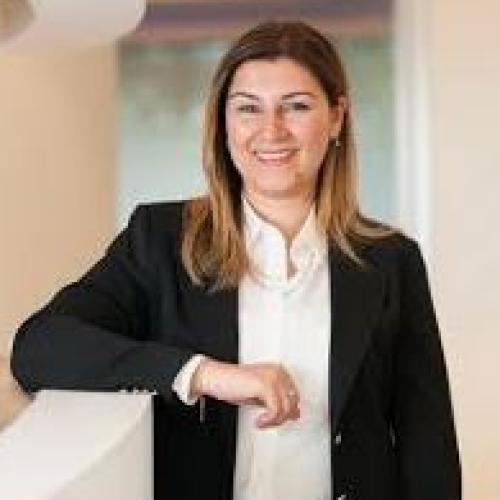
Selin Sinem Erciyas
PartnerGun & Partners
Matthew O’Neill
Director of European IPGlenmark Pharmaceuticals
Paul Ainsworth
DirectorSterne Kessler
David Por
PartnerClifford ChanceTime:09:10am - 10:10amAgenda Track No.:Track 1Session Type:PanelForce Inline Description:0Understanding Different Perspectives Surrounding Patent Quality and Its Impact Upon the Patent Ecosphere
Patent quality remains a critical concern for technology and innovation-driven industries such as Life Sciences, IoT, automotive, telecommunications, and medical devices. This session will examine how differing definitions and expectations of quality are shaping global enforcement strategies and IP value. Panellists will explore the role of major patent offices and courts – including the EPO, UPC and PTAB – and discuss how perceptions of patent strength affect licensing leverage, competitive positioning and dispute outcomes across jurisdictions. Expect a comparative and commercially grounded discussion on how businesses are adapting their portfolios and legal strategies in response.
• Compare approaches to patent quality and examination at the EPO, USPTO and other key offices.
• Discuss the relationship between patent quality and litigation outcomes in major venues including the UPC and PTAB.
• Explore how companies are shaping their portfolios to maximise commercial and legal advantage.
Speaker(s):
Farnaz Massoumian
Senior Patent AttorneyVodafone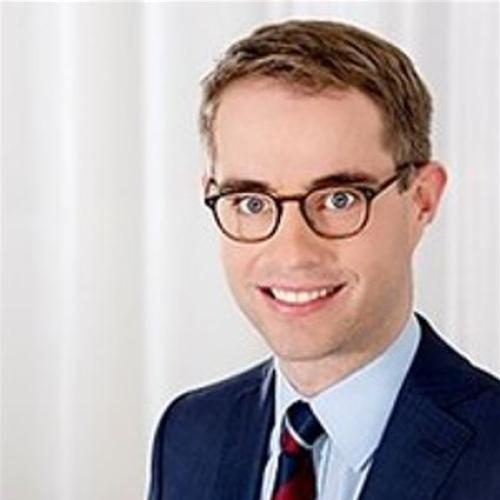
Wolfram Thomas
Senior Director- Patent CounselQualcomm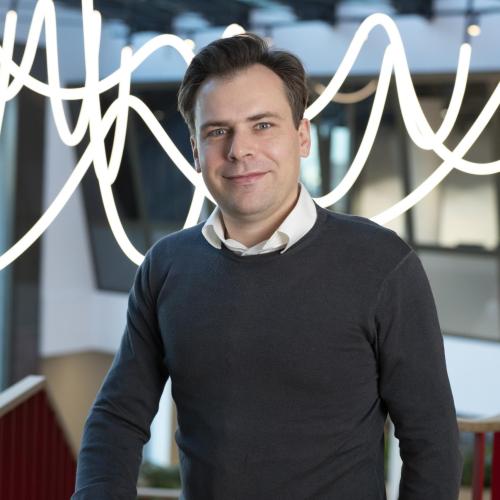
Georg Müller
Head of IPTom TomDr. Georg Müller is Swiss and European Patent Attorney and leads TomTom’s IP team as Head of IP. Prior to this, he oversaw Strategic IP Counsel the IP activities of the Grid Automation Business Unit of Hitachi Energy. Dr. Müller started his professional career in Research and Development at ABB Corporate Research. He holds a doctoral degree in physics after studies of physics in Göttingen, Hannover, and Santa Barbara.
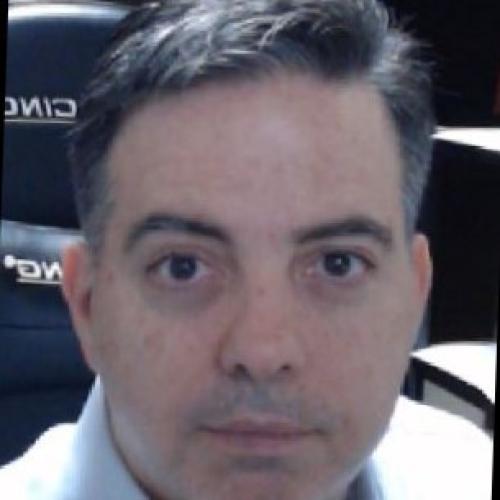
Louis Ross
CEOMEI Micro
Peter Finnie
PartnerPotter ClarksonTime:9:10am - 10:10amAgenda Track No.:Track 2Session Type:General Session (Presentation)Force Inline Description:0Plausibility, Litigation and the Comparative Landscapes in the EU and the Rest of the World
The EPO’s decision in G2/21 was meant to bring clarity, but questions around plausibility standards remain unsettled. This panel will assess how national courts and the EPO are applying the doctrine and the implications for life sciences patents.
• Compare approaches to plausibility in the UK, Netherlands, and EPO post-G2/21.
• How are national courts diverging from or aligning with the EPO's reasoning?
• Explore how plausibility has been tested in key cases including Apixaban and Dapagliflozi.
• Understand the vulnerability of life sciences patents under current plausibility thresholds and discuss the risks of invalidation, and how should companies adapt?
• Discuss the comparative written description and enablement standards in China and the latest case law which may affect your global litigation strategy.Speaker(s):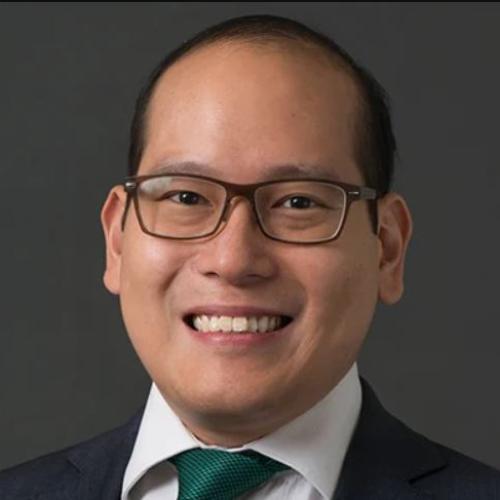
Jin Ooi
PartnerKirkland & Ellis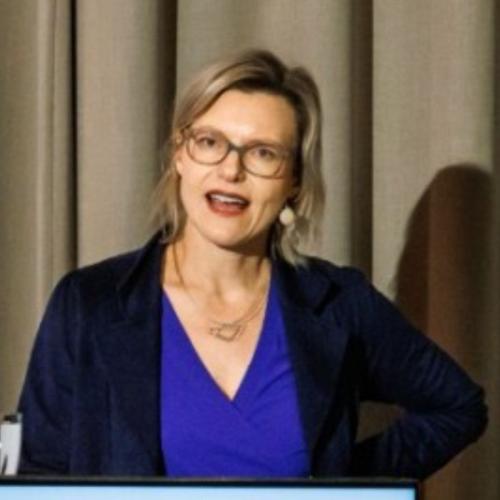
Corinna Sundermann
Senior Vice President Intellectual PropertyFresenius Kabi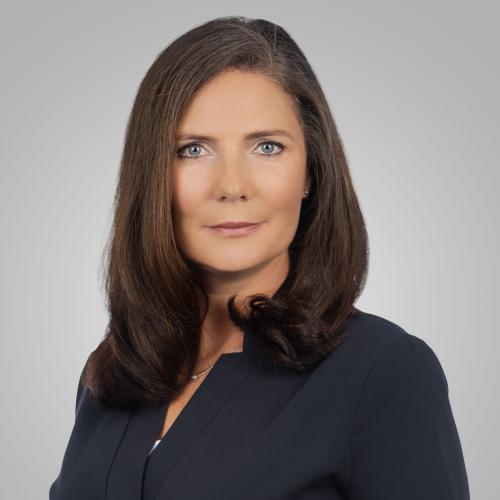
Eva Ehlich
PartnerMaiwald
Guido Pontremoli
Vice President Global IPChiesiCurrently employed as global Head of the IP department-Patent at Chiesi Farmaceutici SpA, managing and coaching a team of experienced patent attorneys, patent searchers and administrators, working on the protection, enforcement, litigation and/or opposition of the Chiesi IP, aligned with business decisions.
Before joining Chiesi, I worked in IP groups of big pharma companies (GSK Vaccine, and Bracco Imaging) as senior patent attorney responsible for all the IP aspects concerning some key R&D projects. I also had experience as patent counsel in private practices, dealing with pharma, chemical and bio entities.
Graduated in chemistry from the Univ of Milan, with a PhD in medicinal chemistry and a post-doc experience in USA, I am qualified EPA and chartered Italian patent attorney.

James Zhu
PartnerJunHe LLP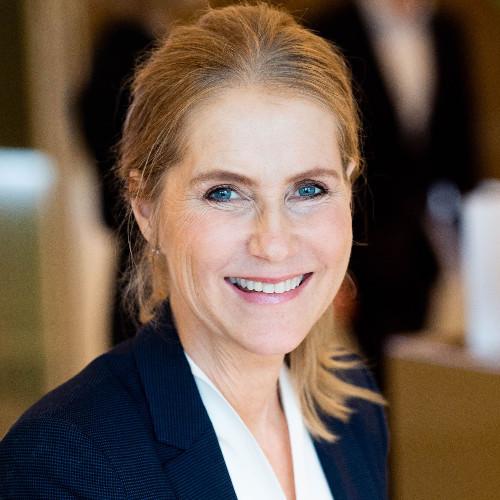
Camila Vislie
PartnerThommessenTime:10:10am - 11:10amAgenda Track No.:Track 1Session Type:PanelForce Inline Description:0Multi-Jurisdiction Patent Litigation and the Rise of the Strategic Forum
As cross-border patent disputes expand, companies now face parallel proceedings in the UK, the UPC, the US, and Asia. From Unwired Planet v. Huawei to Panasonic v. OPPO, courts are asserting global influence over licensing, validity, and enforcement. This session explores how strategic forum selection and procedural divergence are reshaping litigation outcomes and global IP strategy.
• Compare how the UK, UPC, US, and German courts approach jurisdiction, declaratory relief, and parallel enforcement.
• Examine how anti-suit injunctions, interim measures, and case sequencing are used to influence settlement leverage.
• Review recent cross-border disputes, including Edwards Lifesciences v. Meril Life Sciences and Apple v. Masimo, to identify emerging litigation patterns across sectors.Speaker(s):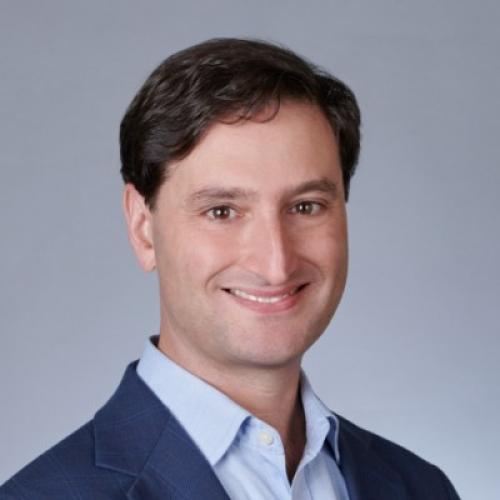
Tom Brown
Senior Managing Legal Director, Head of Intellectual Property LitigationDell
Taylor Ludlam
Vice President- IP & LitigationLenovo
Boukje Van der Maazen
LawyerBrinkhof
Le Chen
Senior Director- IP Policy & Dispute ResolutionXiaomi Technology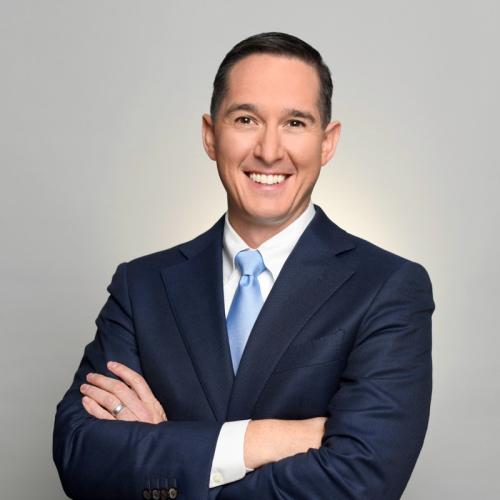
Adam Shartzer
PrincipalFish & RichardsonTime:10:10am - 11:10amAgenda Track No.:Track 2Session Type:General Session (Presentation)Force Inline Description:011:10am-11:50amNetworking BreakInteractive Workshop: Advancing Inclusion in the European Patent Landscape with ChIPs
Speaker(s):
Emily Bottle
PartnerHSF Kramer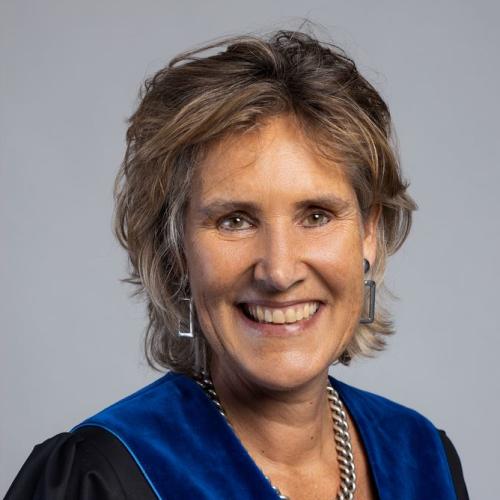
Margot Kokke
Honourable JudgeUPC Court of First Instance
Laila Beynon
Director – Dispute ResolutionRegeneronLaila Beynon is Director, Dispute Resolution at Regeneron, responsible for the strategic co-ordination of ex-US patent litigation. She has a PhD in Biochemistry/Molecular Biology, 10 years’ private practice experience in life sciences patent litigation at Herbert Smith Freehills LLP, and prior to her role at Regeneron headed up the Patent Litigation team at BAT.

Anna Giedke
PartnerBardehle Pagenberg
Kai Harmänd
Honourable JudgeUPC Court of First InstanceTime:11:20am-11:50amSession Type:General Session (Presentation)Force Inline Description:0UPC Strategy Session: Discussing the Effect of Europe’s Newest Patent Court Upon the Life Science Sector
The UPC was met with caution by the life science sector. Nevertheless, new data from its first two years shows a changing reality - pharmaceutical and chemistry-related litigation is not only present, it’s gaining momentum. This session will offer a deep dive into the UPC’s evolving role in high-stakes life science patent disputes, helping you prepare an informed strategy for 2025 and beyond.
• Understand the latest UPC litigation statistics and what they reveal about pharma and chemistry sector adoption.
• Discover why Milan and Munich are emerging as key venues for life science disputes and what it means for your forum selection.
• Learn how English-language dominance is shaping litigation strategy for multinational teams.
• Analyse how early UPC case law is influencing industry confidence and what your business risks by staying on the sidelines.
• Hear how to coordinate UPC proceedings with EPO oppositions to build an integrated and effective litigation approach.Speaker(s):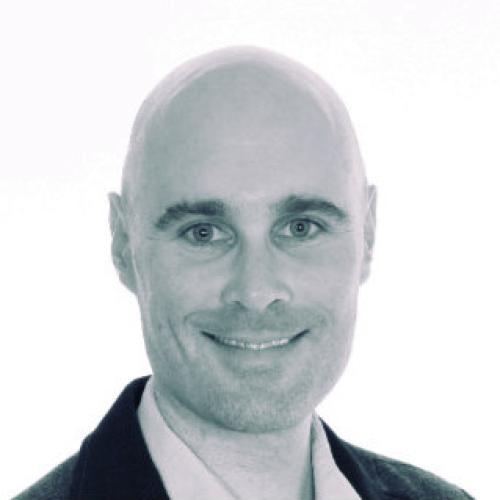
James Robertson
Head of Global IPBioMérieux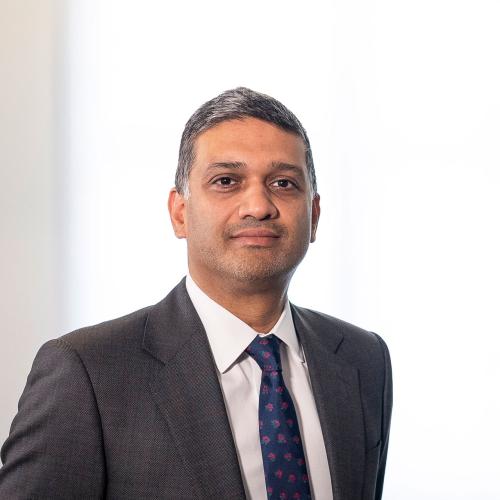
Siddharth Kusumakar
PartnerPowell Gilbert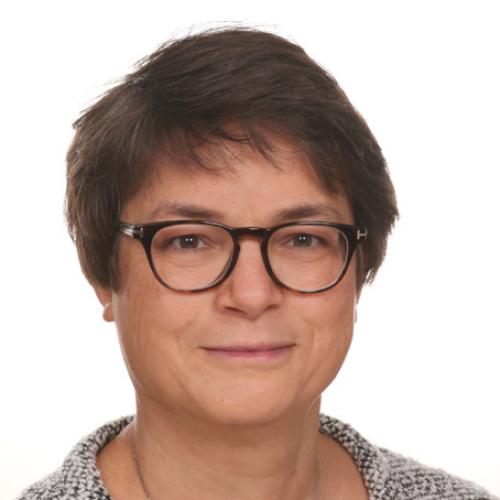
Katherine Hinterberg
Senior Director- Patent LitigationModerna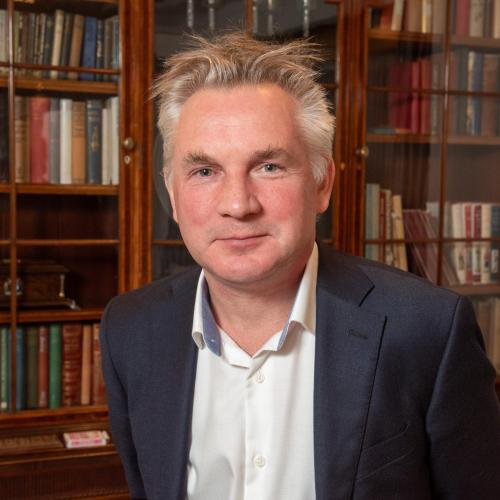
George Moore
Assistant General CounselViatris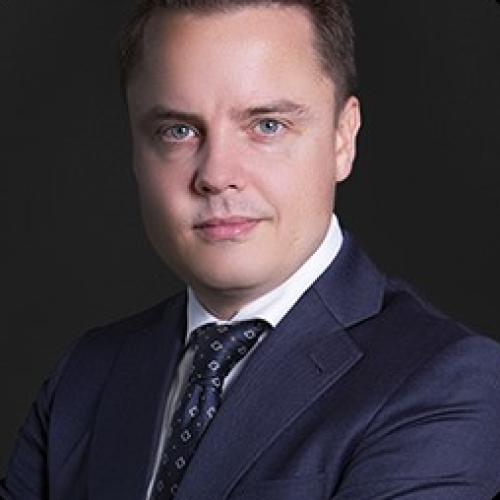
Oscar Lamme
PartnerSimmons & SimmonsTime:11:50am-12:40pmAgenda Track No.:Track 1Session Type:PanelForce Inline Description:0Judges Forum: FRAND Royalty Rate Determination and Beyond
Judges from leading patent jurisdictions come together to share their perspectives on FRAND royalty rate determination and core technology related patent litigation questions. This forum offers a rare opportunity to hear directly from those shaping the legal landscape around standard-essential patents, licensing disputes, and evolving enforcement trends. The panel will explore practical challenges, judicial approaches, and insights into how courts are balancing innovation incentives with fair competition.
Speaker(s):
Edger Brinkman
Honourable Judge, Local Division HagueUPC
Gary Moss
ChairmanEIP
Colin Birss
ChancellorHigh Court of England and WalesSir Colin Birss was sworn in as Chancellor of the High Court in November 2025. He was called to the English Bar in 1990 and practiced in intellectual property law, taking silk in 2008. In 2010 Colin Birss went on the bench, first as judge of the Patents County Court (now IPEC) and then, in 2013, to the High Court. In 2019 became Judge in Charge of the Patents Court. Colin was sworn in as a Lord Justice of the Court of Appeal in 2021 and took up a senior leadership role as the Deputy Head of Civil Justice until November 2025.

Margot Kokke
Honourable JudgeUPC Court of First InstanceTime:11:50am-12:40pmAgenda Track No.:Track 2Session Type:General Session (Presentation)Force Inline Description:012:40pm-13:40pmNetworking LunchTo Settle or Not to Settle? Decisions and Strategies for the Life Science Sector
With the introduction of the UPC and shifting dynamics in global patent enforcement, life science companies face renewed questions about when to settle, when to litigate, and how to choose the right forum. This candid, cross-sector panel of in-house counsel and litigators will explore how dispute resolution strategy is evolving across the industry.
• Discover how in-house teams weigh the risks and rewards of litigation versus settlement in a post-UPC world.
• Determine whether certain sectors - such as biotech, generics, or medtech - are more inclined to settle and why.
• Discuss practical insights on how to structure licensing negotiations or parallel proceedings to support favourable outcomes.Speaker(s):
Shohta Ueno
Assistant General Counsel - Dispute ResolutionRegeneron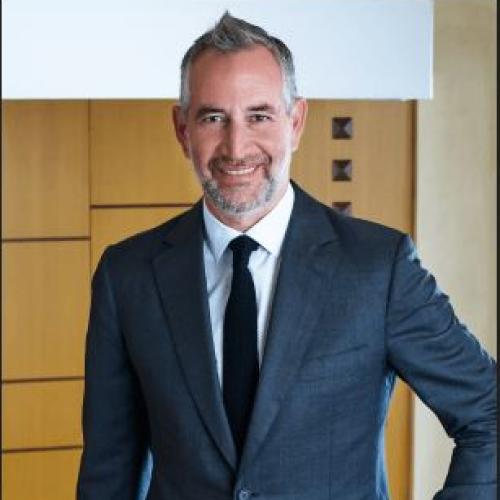
Emre Kerim Yardımcı
Senior PartnerDeris
Marc Lauzeral
PartnerSchertenleib Avocats
Ellen Broug
European Patent Attorney- UPC RepresentativePlasseraud IP
Konstantina Koriatopoulou
Director of IPElpenTime:13:40pm-14:30pmAgenda Track No.:Track 1Session Type:PanelForce Inline Description:0NPEs, Aggregators and SEP Regulation: Who Really Shapes Global Patent Litigation and Licensing?
As Europe’s proposed SEP regulation stalls and global enforcement accelerates, the balance of power between regulators, NPEs, and aggregators is shifting fast. This session examines how new licensing structures, transparency demands, and collective negotiation groups are reshaping global SEP and FRAND dynamics. Panellists will assess how regulatory uncertainty, patent pools, and private licensing vehicles are redefining control over rates, litigation, and access to standards-based technology.
• Explore how NPEs, defensive aggregators, and LNGs influence litigation risks, royalty setting, and enforcement behaviour across jurisdictions.
• Understand how patent pools like Via Licensing Alliance, Sisvel and Avanci are adapting to regulatory scrutiny and calls for transparency in essentiality checks.
• Assess how emerging regulation, antitrust enforcement, and collective negotiation models are redefining licensing leverage for both implementers and SEP holders.Speaker(s):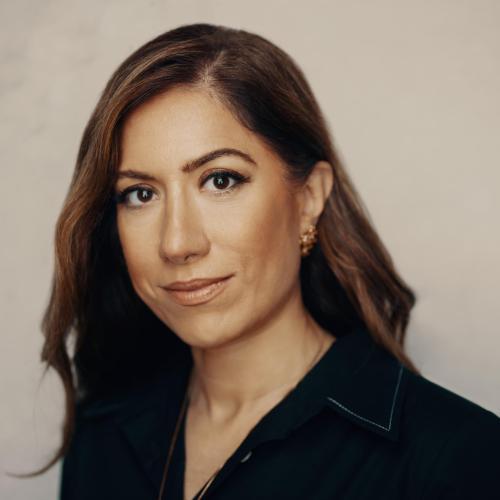
Bita Mortazavi
VP of Patent AnalysisRPX Corporation
Adrian Howes
Head of IP and Standards- IP PolicyNokia
Tom Brown
Senior Managing Legal Director, Head of Intellectual Property LitigationDell
Helene Jay
VP Media ProgramsVia Licencing AllianceTime:13:40pm-14:30pmAgenda Track No.:Track 2Session Type:General Session (Presentation)Force Inline Description:0Interplay Between UPC and National Litigation in the Life Sciences Sector
With the UPC now established, its impact on national litigation in key life sciences jurisdictions is becoming clearer. This session examines how the UPC’s decisions intersect with proceedings in the UK, France, Germany, the Netherlands, and the US. Speakers will explore recent cases, including BSH v. Electrolux and Fujifilm v. Kodak, assessing the reach of the UPC, divergence in substantive law, and the evolving balance between national and supranational enforcement.
- Discuss the impact of early UPC rulings on litigation strategies in the UK, France, Germany, and the Netherlands
- Analyse the long-arm reach of the UPC and lessons from cases such as BSH v. Electrolux and Fujifilm v. Kodak
- Compare how national courts and the UPC apply substantive law in overlapping disputes
- Evaluate strategic considerations for coordinating litigation in the UPC versus national and US courts
Speaker(s):
Mike Gilbert
PartnerMarks & ClerkMike Gilbert is a partner at Marks & Clerk in London. He is an Intellectual Property (IP) lawyer who advises clients in a wide variety of business sectors on issues including litigation and dispute resolution, IP strategy and risk limitation, due diligence projects and commercial and licensing transactions involving IP. His primary focus and expertise, however, lies in life sciences patent litigation where he is considered to be one of the UK’s leading practitioners. He has represented some of the world’s leading biopharmaceutical corporations in complex patent and technical disputes including Genentech, Roche, Chugai, Pfizer, Wyeth, AstraZeneca, MedImmune, Daiichi Sankyo, AbbVie, Amgen and Illumina to name but a few. Mike is well known for his strategic and creative vision and is consistently recommended in various legal directories including the World IP Review, Legal 500, Who's Who Legal and the IAM Patent 1000 guide, which describe him as “always at the top of the pile, especially for pharmaceutical matters”. Mike graduated from Cambridge University in 1989 with a degree in chemical engineering.

Daniel Hoppe
PartnerBonabry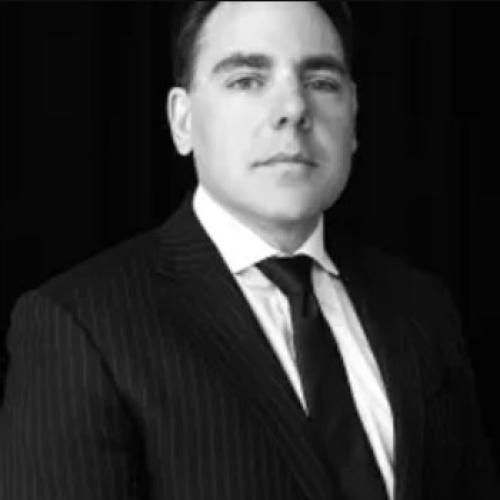
Denis Schertenleib
PartnerSchertenleib Avocats
Daan De Lange
PartnerBrinkhofTime:14:30pm - 15:20pmAgenda Track No.:Track 1Session Type:PanelForce Inline Description:0The Converging Fronts of Trade Secret and Patents
As European courts see increased trade secret enforcement activity, particularly in industries like semiconductors, AI, , biotechnology and automotive, the strategic interplay between patent and trade secret protection is evolving. This session will explore the practical and legal considerations that drive trade secret litigation, and how these disputes intersect with patent strategies, particularly in cross-border contexts. Panellists will discuss how European companies are learning from U.S. trade secret practice and how this is shaping enforcement choices, litigation posture, and IP portfolio structuring.
• Examine key differences in procedural tools and evidentiary requirements for trade secret litigation across Europe and the U.S.
• Explore how businesses decide between trade secret protection and patenting in fast-moving sectors like AI, mobility, biotech and software.
• Discuss coordination of parallel patent and trade secret disputes, including cross-border enforcement challenges and forum selection strategies.
Speaker(s):
David Goodfellow
Chief IP CounselAptiv
Adele Calamo Specchia
Head of Ownership & LicensingASML
Joachim Herrn
Chief Legal Officer and General CounselNorwegian Green Solutions AS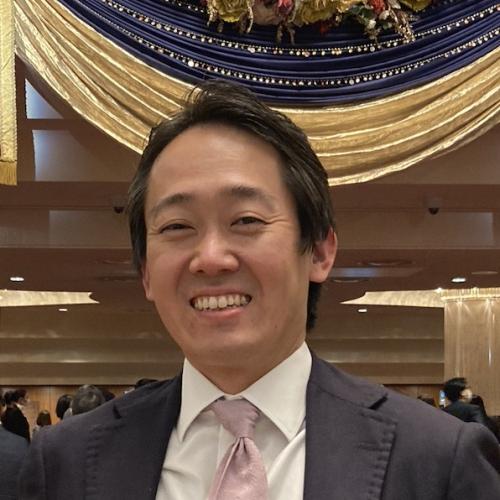
Mitsuaki Masumura
Head of Licensing AP & EMEAIBM
Marc Lauzeral
PartnerSchertenleib AvocatsTime:14:30pm- 15:20pmAgenda Track No.:Track 2Session Type:General Session (Presentation)Force Inline Description:015:20pm-15:40pmNetworking BreakSPC & PTE Litigation Review for the Life Sciences Sector
Supplementary Protection Certificates remain a critical and complex aspect of pharmaceutical patent strategy. This session offers a comprehensive review of recent landmark rulings and evolving practices across Europe, providing life sciences patent holders with key insights to refine their SPC approaches in 2025.
• Explore pivotal cases such as Teva/MSD and Halozyme, and their impact on Articles 3(a), 3(c), and 1(b) concerning combination products and active ingredient interpretation.
• Understand how recent UK decisions, including Merck v Comptroller (2025), reflect divergence from broader European SPC practice, and examine emerging trends in antibody SPCs and unitary SPC legal status.
• Examine the expanded SPC Manufacturing Waiver regime since 2022, including conflicting rulings from Belgium, Germany, and the Netherlands on storage, export, and notification requirements.
• Gain practical guidance on managing waiver-related risks, protecting exclusivity, and navigating cross-jurisdictional challenges in SPC enforcement and litigation.Speaker(s):
Karin Pramberger
Head of IPPolpharma GroupKarin has been Intellectual Property Director at the Polpharma Group since April 2018. She is responsible for all patent and trade mark related activities. Prior to joining the Polpharma Group, Karin was Head of IP of Medichem, Spain, and worked in various positions within the patent department of Teva, Barr and Pliva. She spent 7 years in a law firm in Vienna, Austria, where she became European and Austrian patent and trade mark attorney. She studied Biotechnology in Vienna, Austria, and at the Ecole Nationale Supérieure de Chemie de Paris, France. In 2017 she graduated with an LLB from the University of London. Since 2005 she has been a tutor at CEIPI, University of Strasbourg, for the pre-exam and the C-part of the European Qualifying Exam.
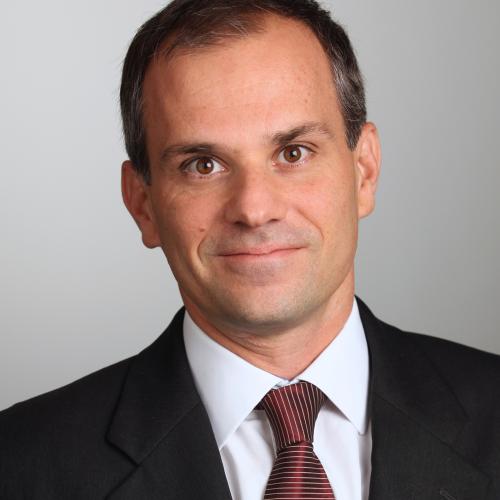
Sebastian Moore
PartnerHSF Kramer
Karen Guo
Senior Director- Patent & IPNovo Nordisk
Anja Lunze
PartnerPentarc
Li Wu
PartnerLifang & PartnersTime:15:40pm-16:30pmAgenda Track No.:Track 1Session Type:PanelForce Inline Description:0Global Regulatory Exclusivities and Litigation for the Pharma and Biotech Sector
The EU pharmaceutical package is set to reshape the European life sciences landscape, with reforms covering data exclusivity, compulsory licences, and SPCs. At the same time, high-profile disputes such as Tecfidera have exposed the litigation risks around exclusivity calculations. This session combines a regulatory overview with a litigation focus to help in-house teams anticipate challenges and adapt their exclusivity strategies.
- Assess proposed reforms to data exclusivity periods and their implications for generic market entry and incentives for innovation.
- Analyse the Tecfidera litigation at the CJEU and national level as a case study in exclusivity disputes and portfolio risk management.
- Examine the introduction of compulsory licences in emergency situations and the resulting litigation risks for originators.
- Evaluate the EU’s push for a centralised unitary SPC system and how it may alter enforcement and harmonisation.
- Debate how exclusivity reforms will influence competition law, supply chain security, and environmental requirements.
- Understand China’s evolving regulatory and enforcement landscape for the life science sector.
- Discuss China’s reliance on invalidation proceedings and administrative routes and understands how global life science companies plan parallel patent and regulatory strategies.
Speaker(s):
Adrian Spillmann
Director of Intellectual PropertyValneva
Alexander Daschner
Director- IPFresenius Kabi
James Zhu
PartnerJunHe LLP
Jackie Mulryne
PartnerMorgan LewisTime:16:30pm-17:15pmAgenda Track No.:Track 1Session Type:PanelForce Inline Description:017:15pmChair Closing Comments17:20pmConference End
Jump to: Monday, 19 Jan | Tuesday, 20 Jan | Wednesday, 21 Jan